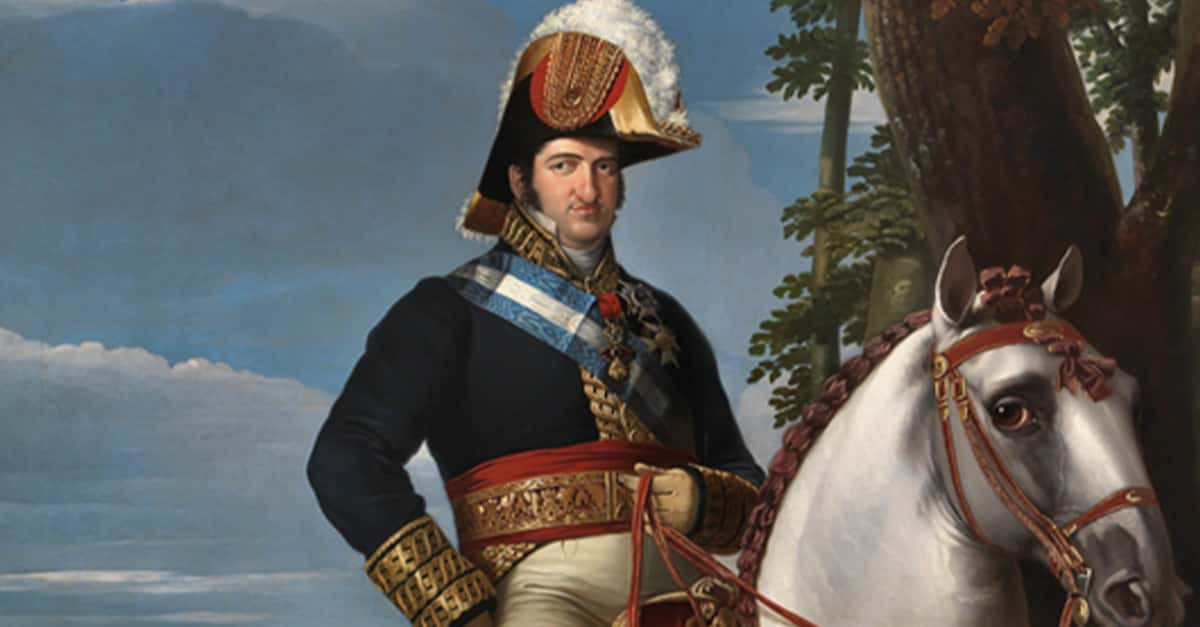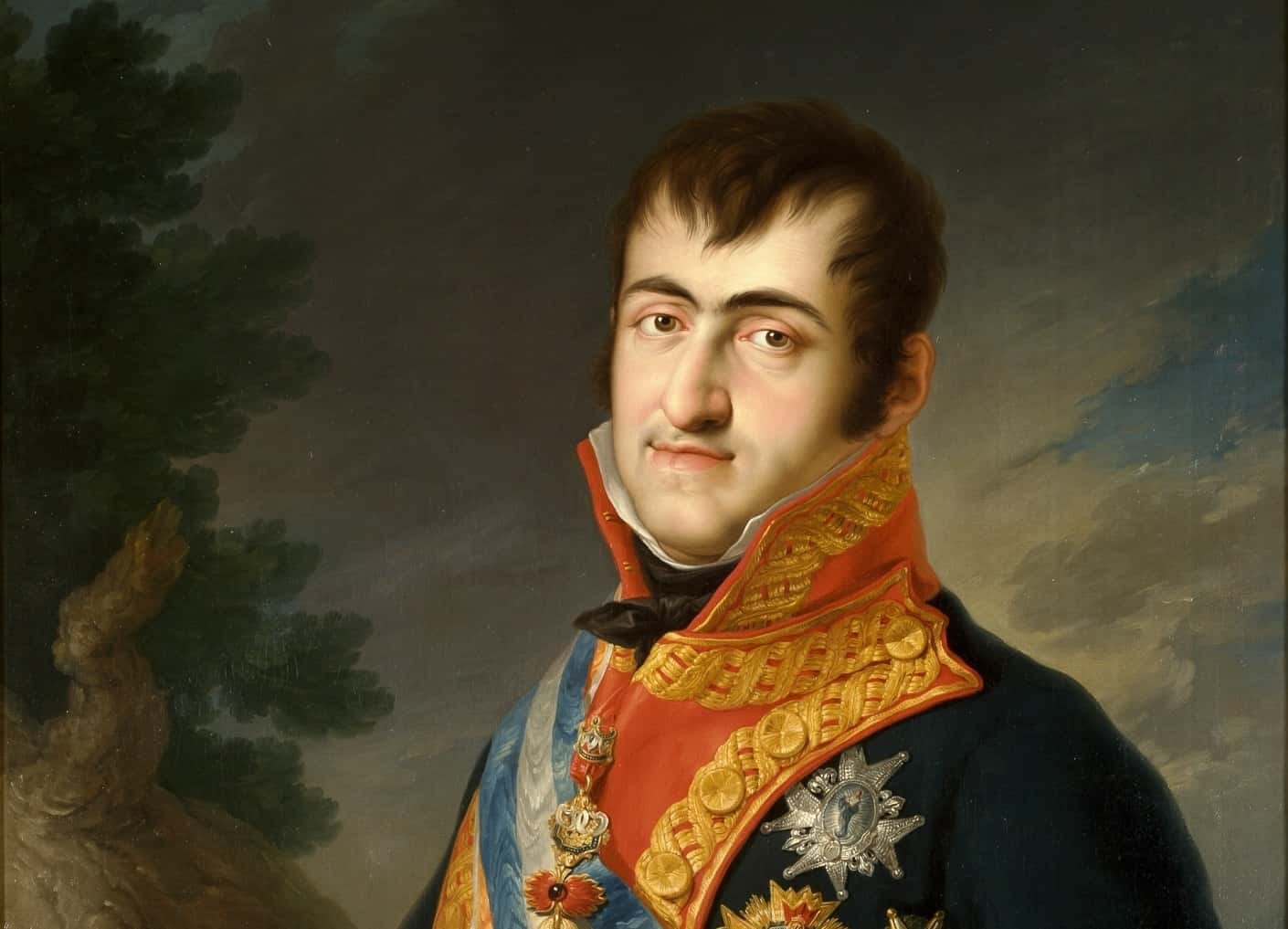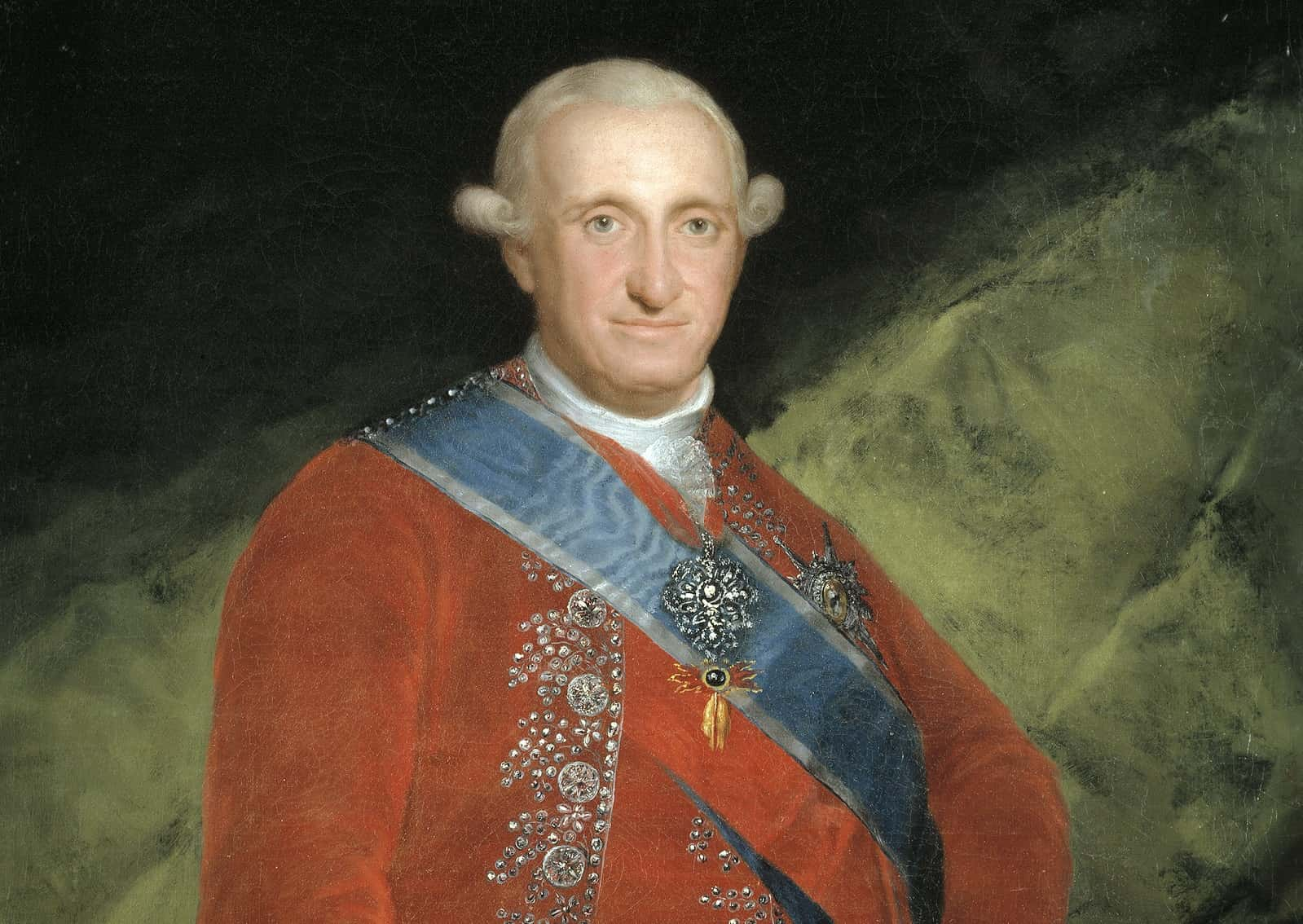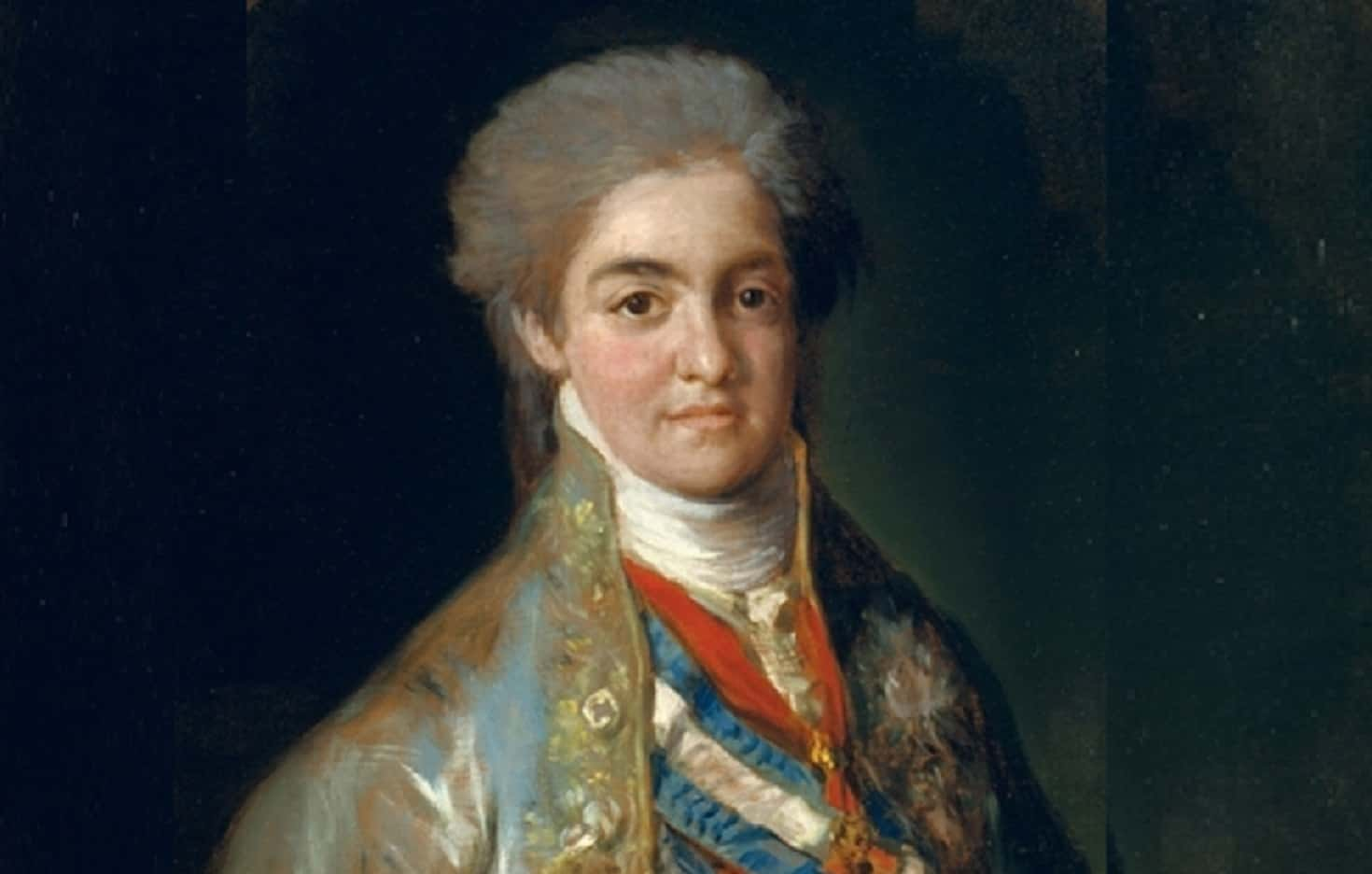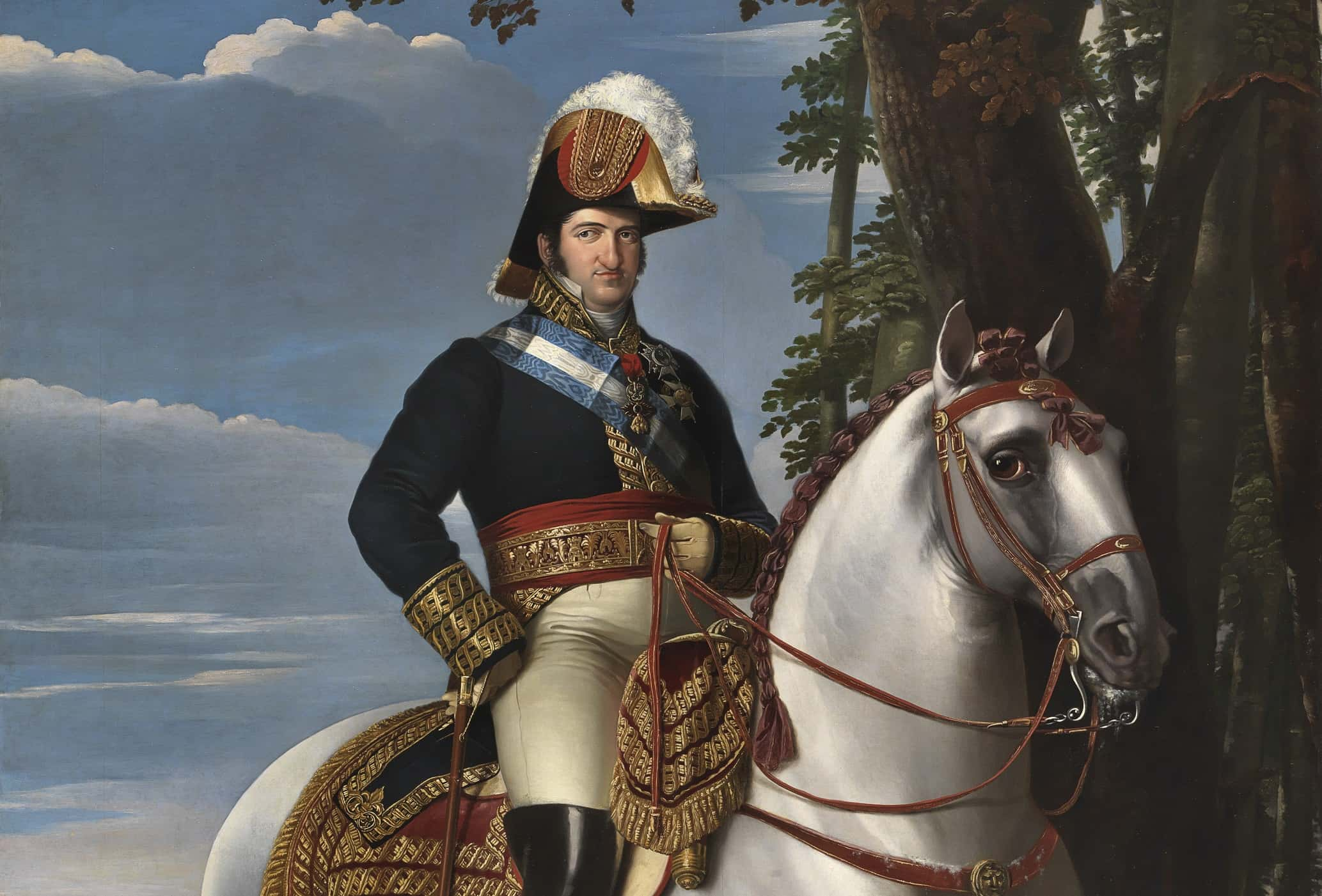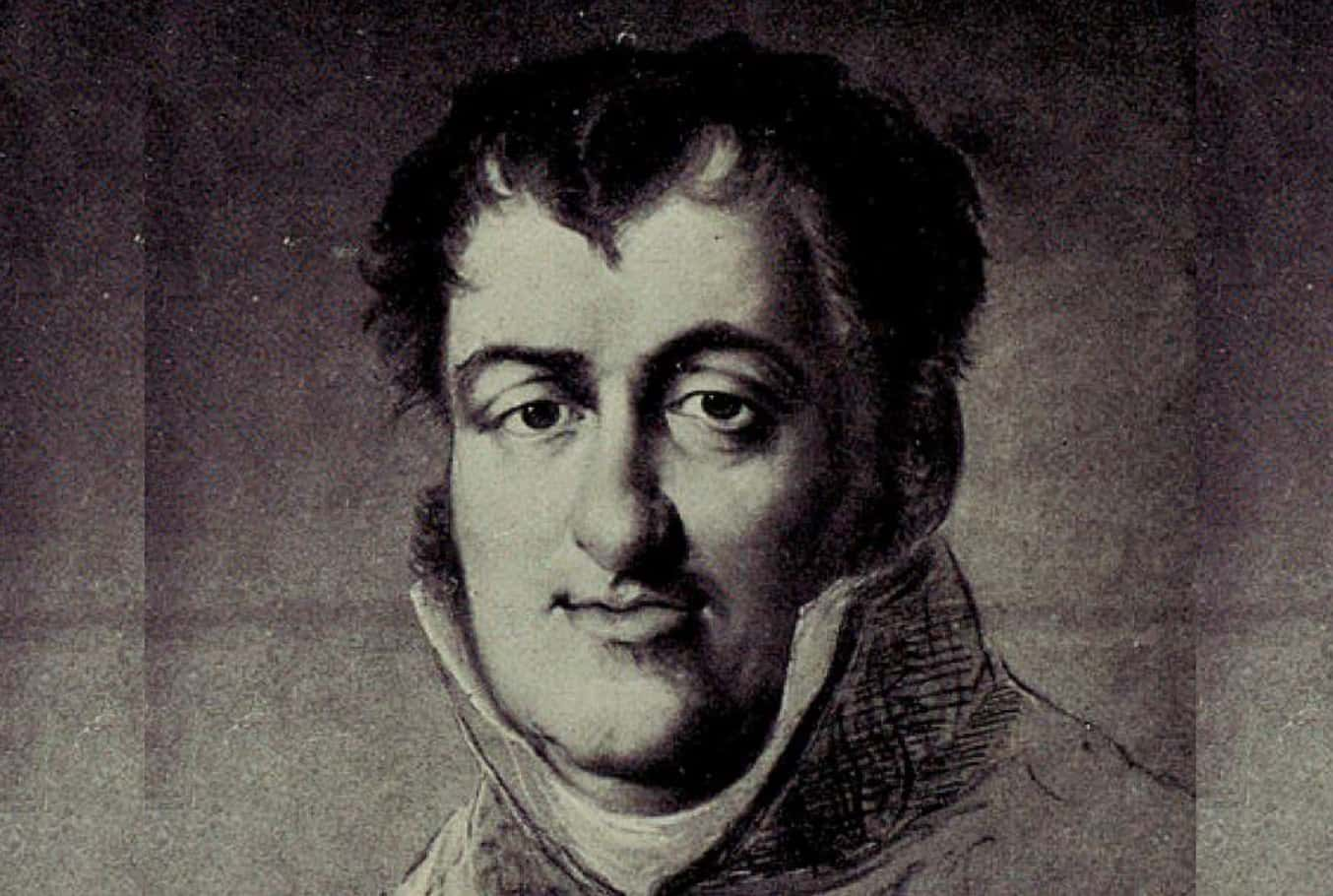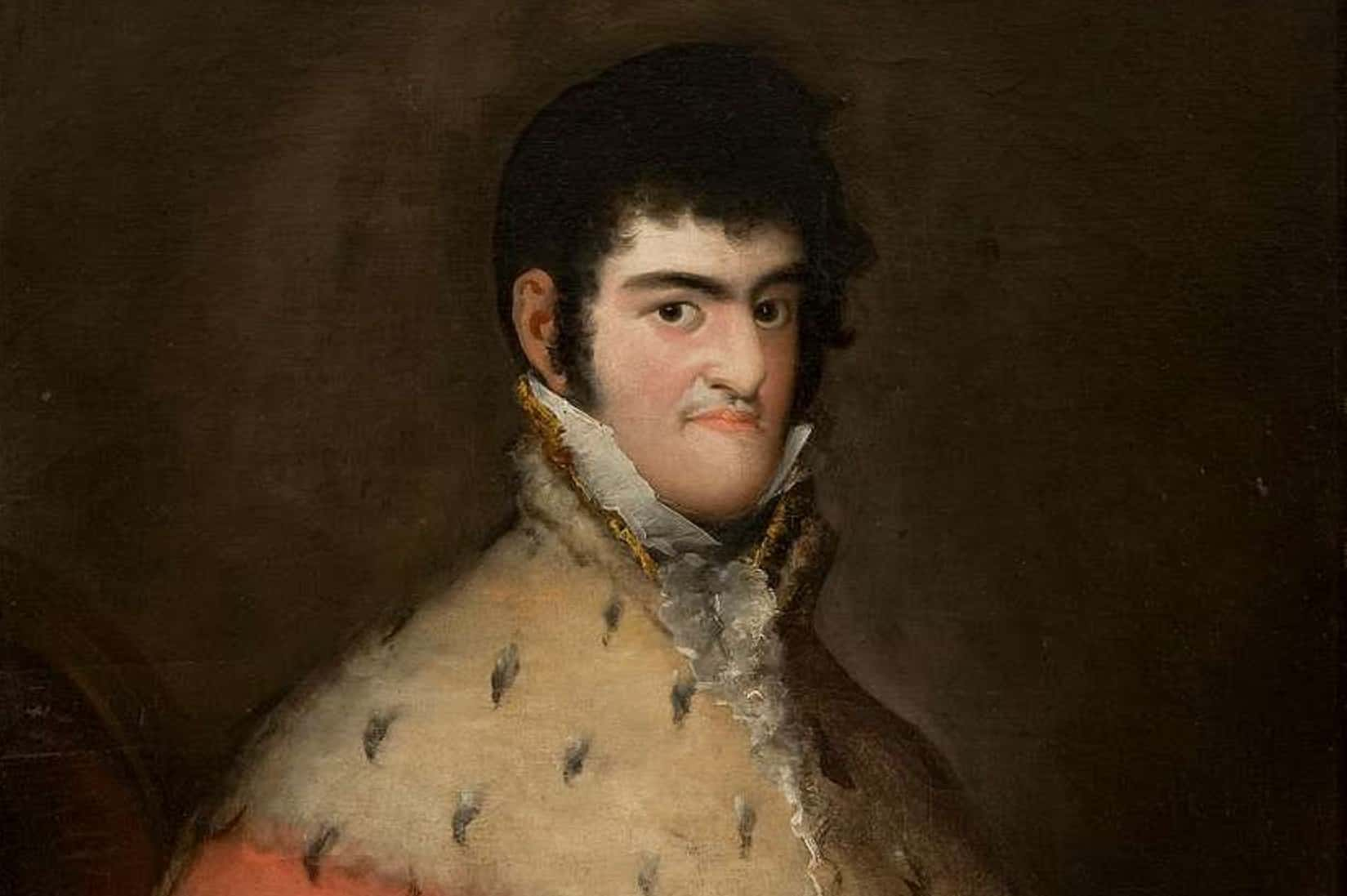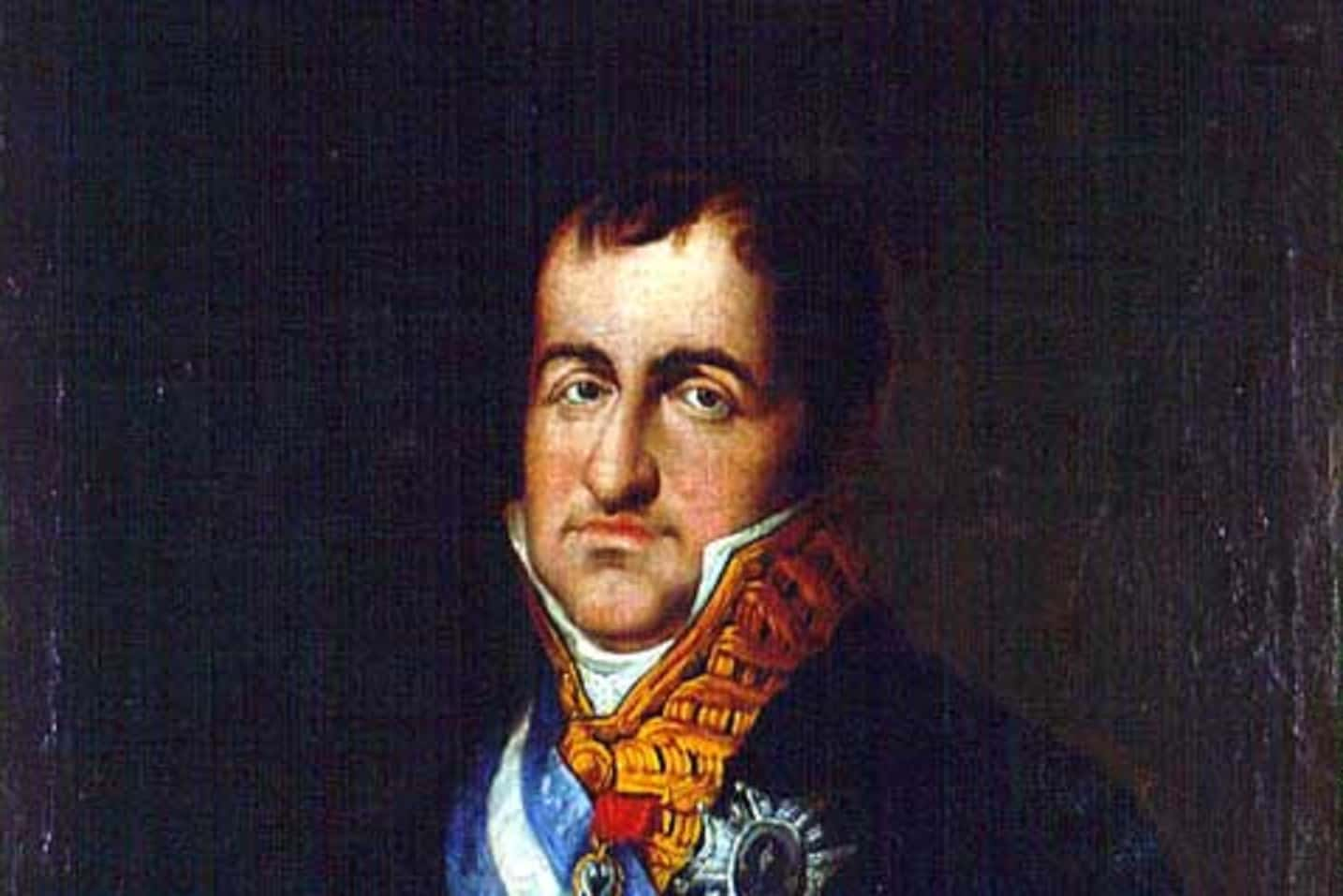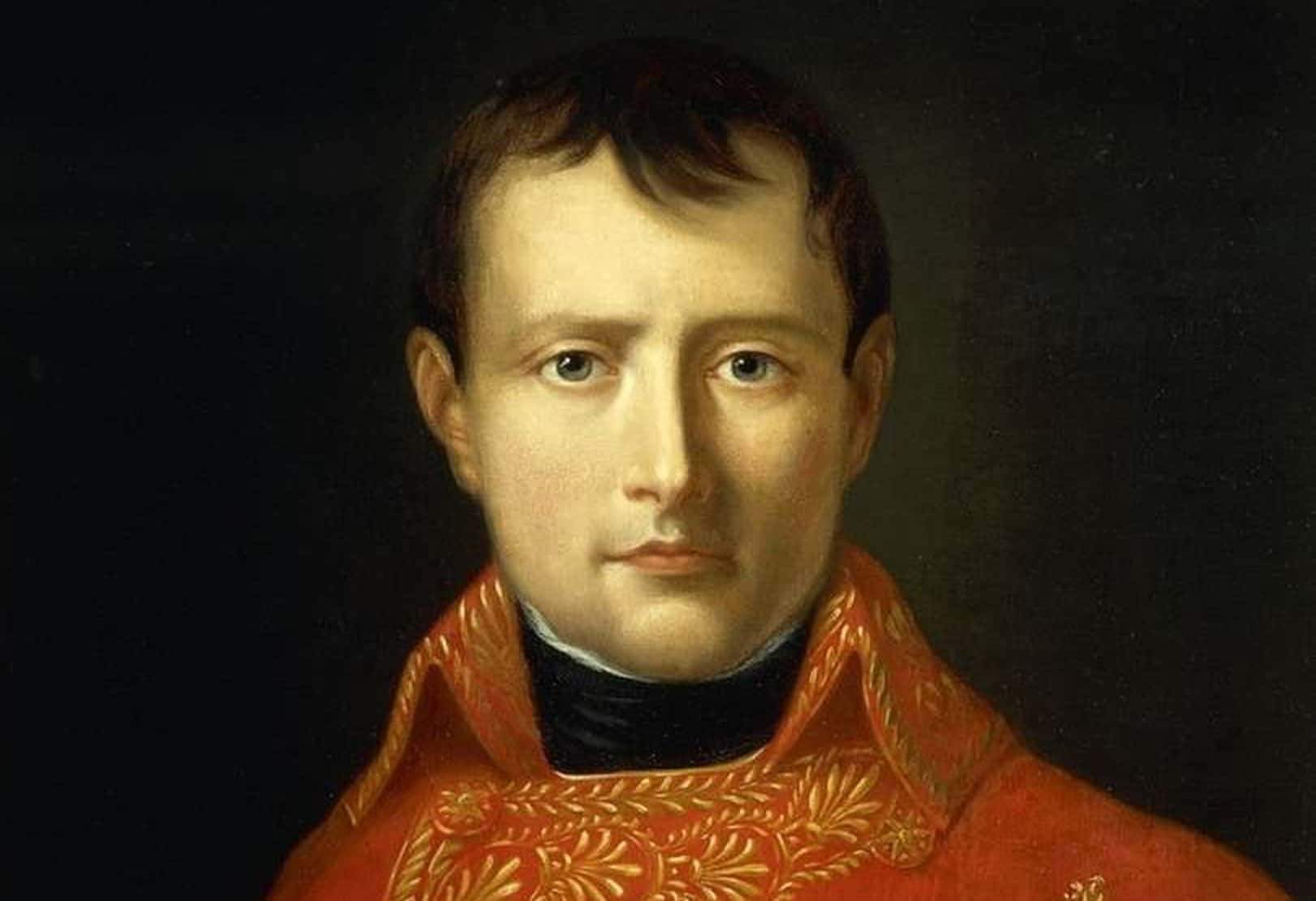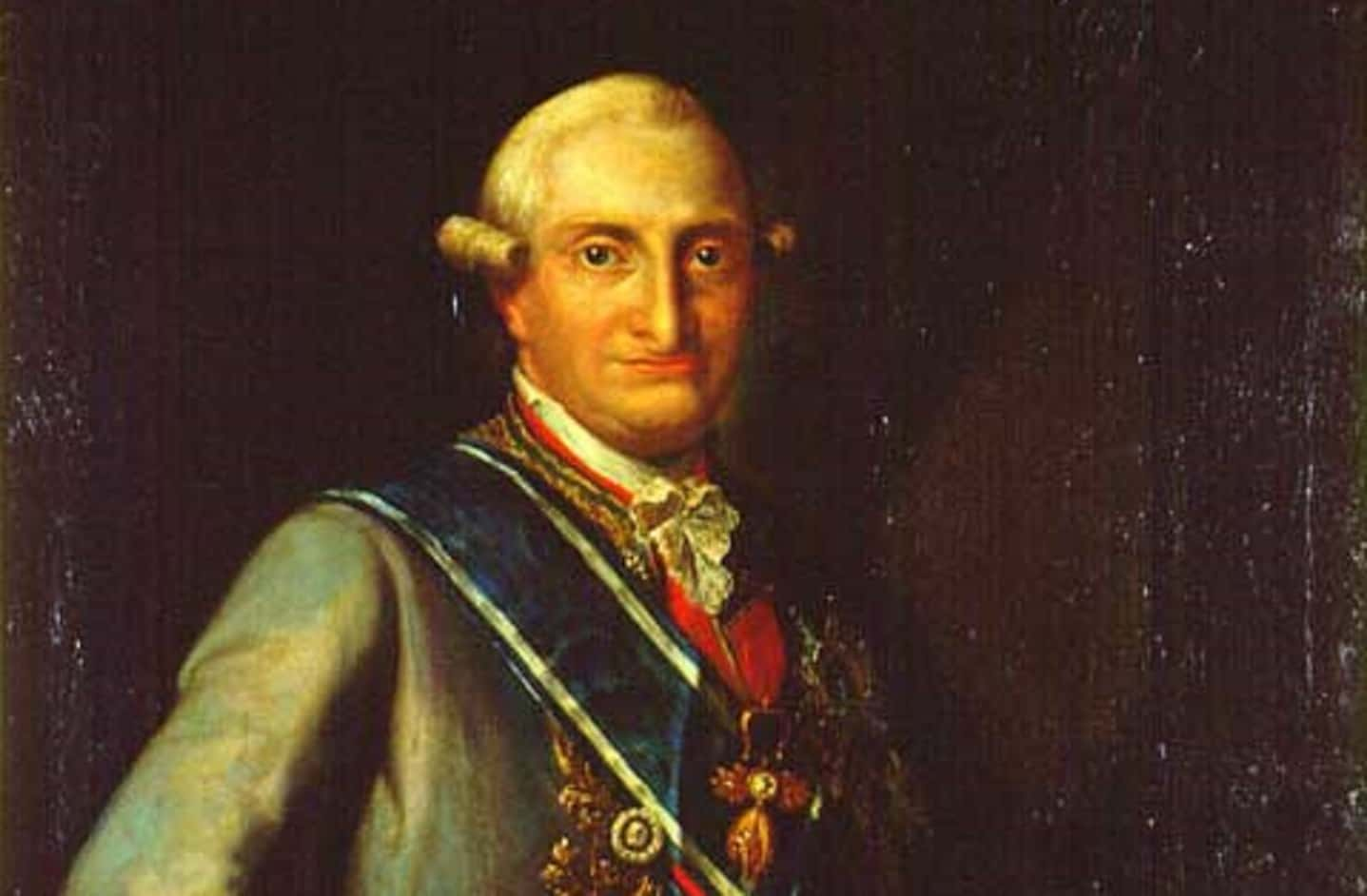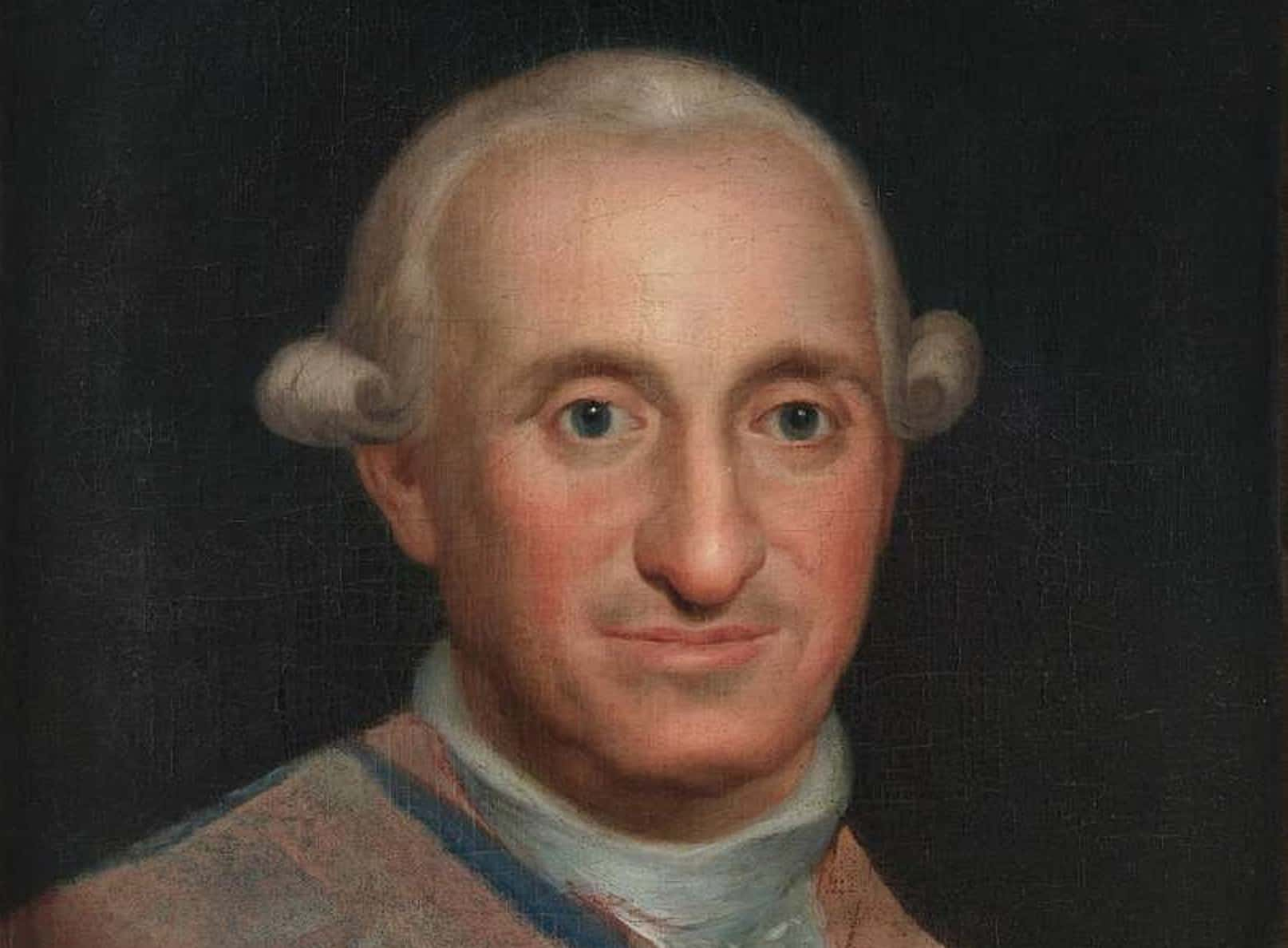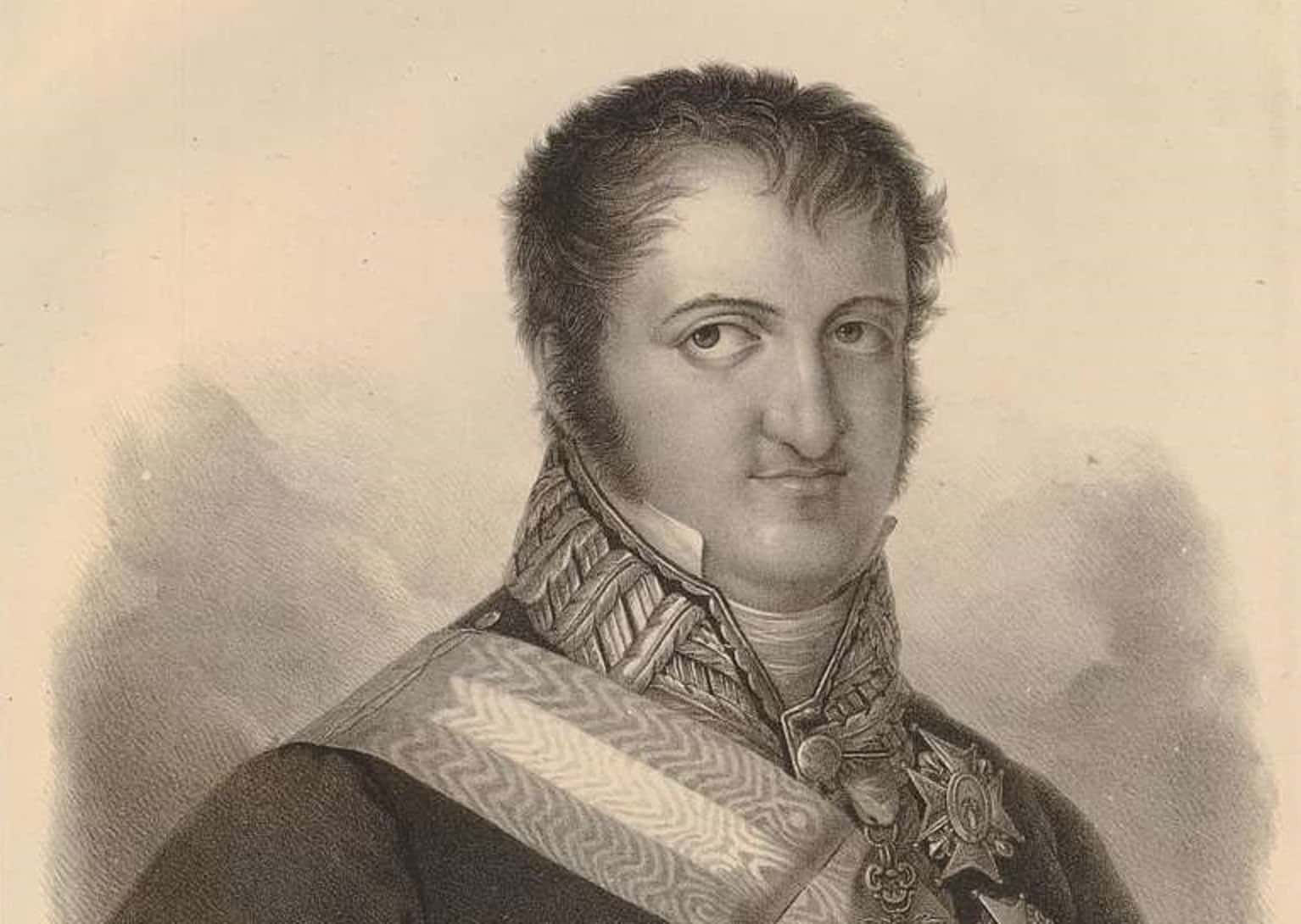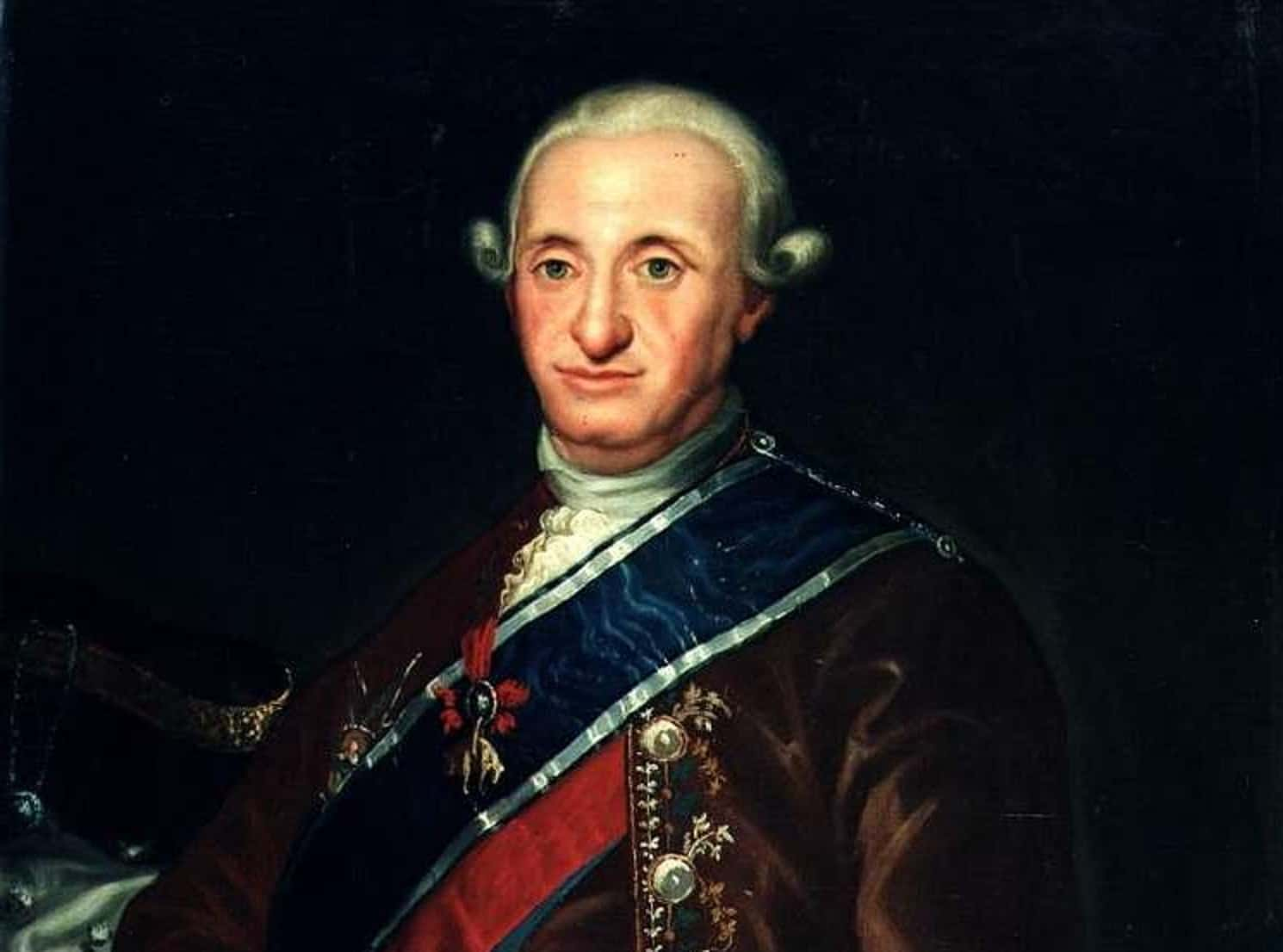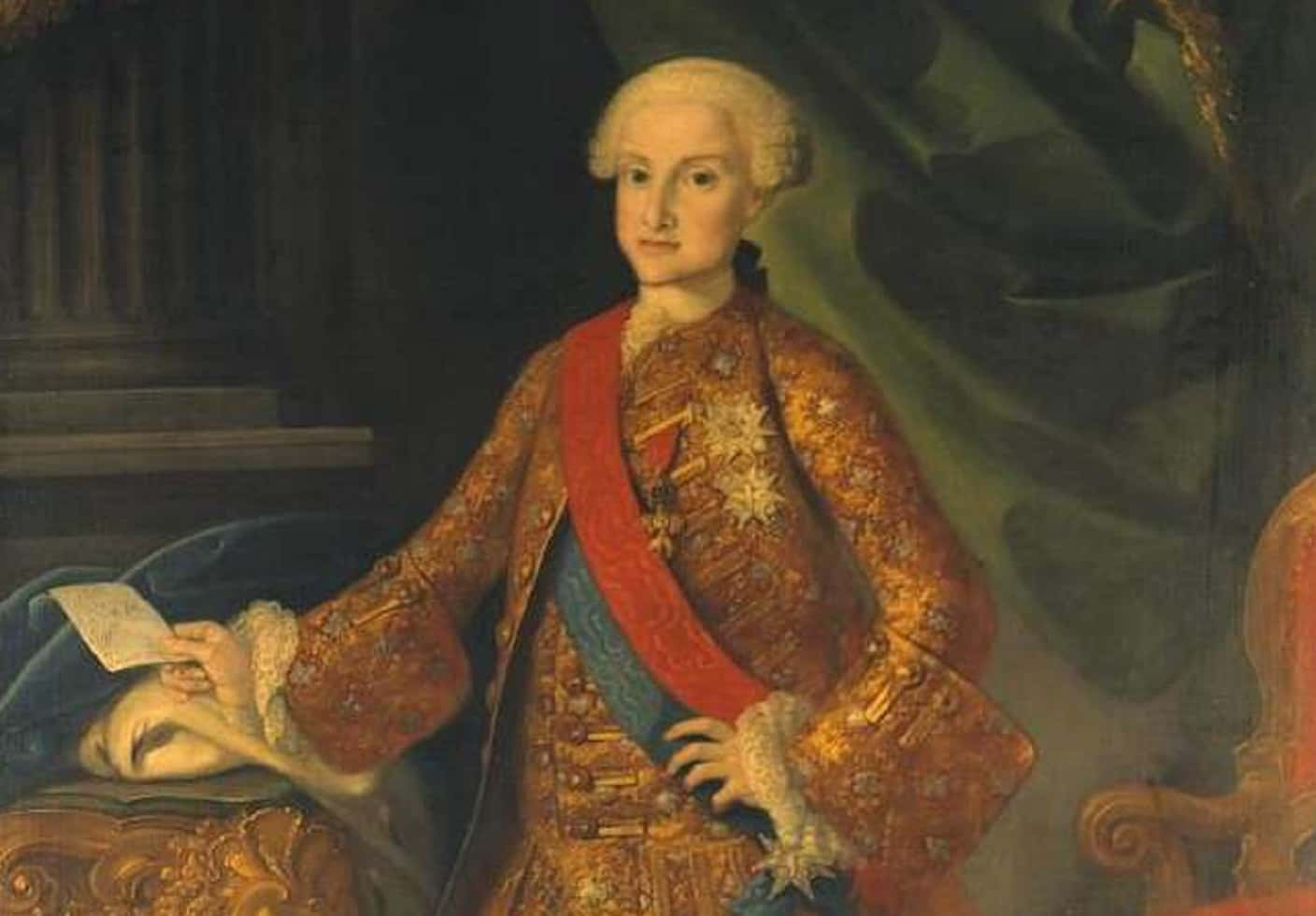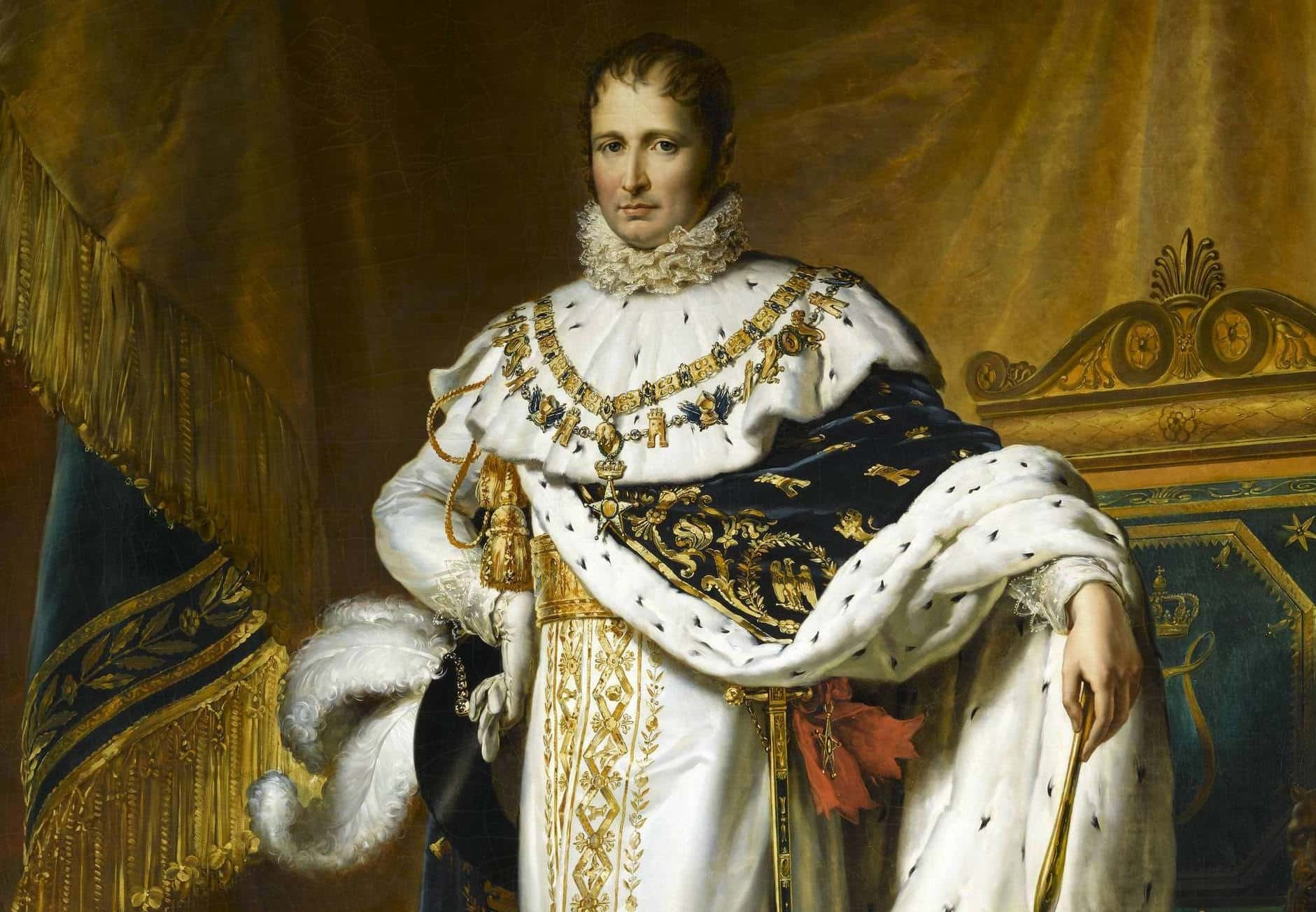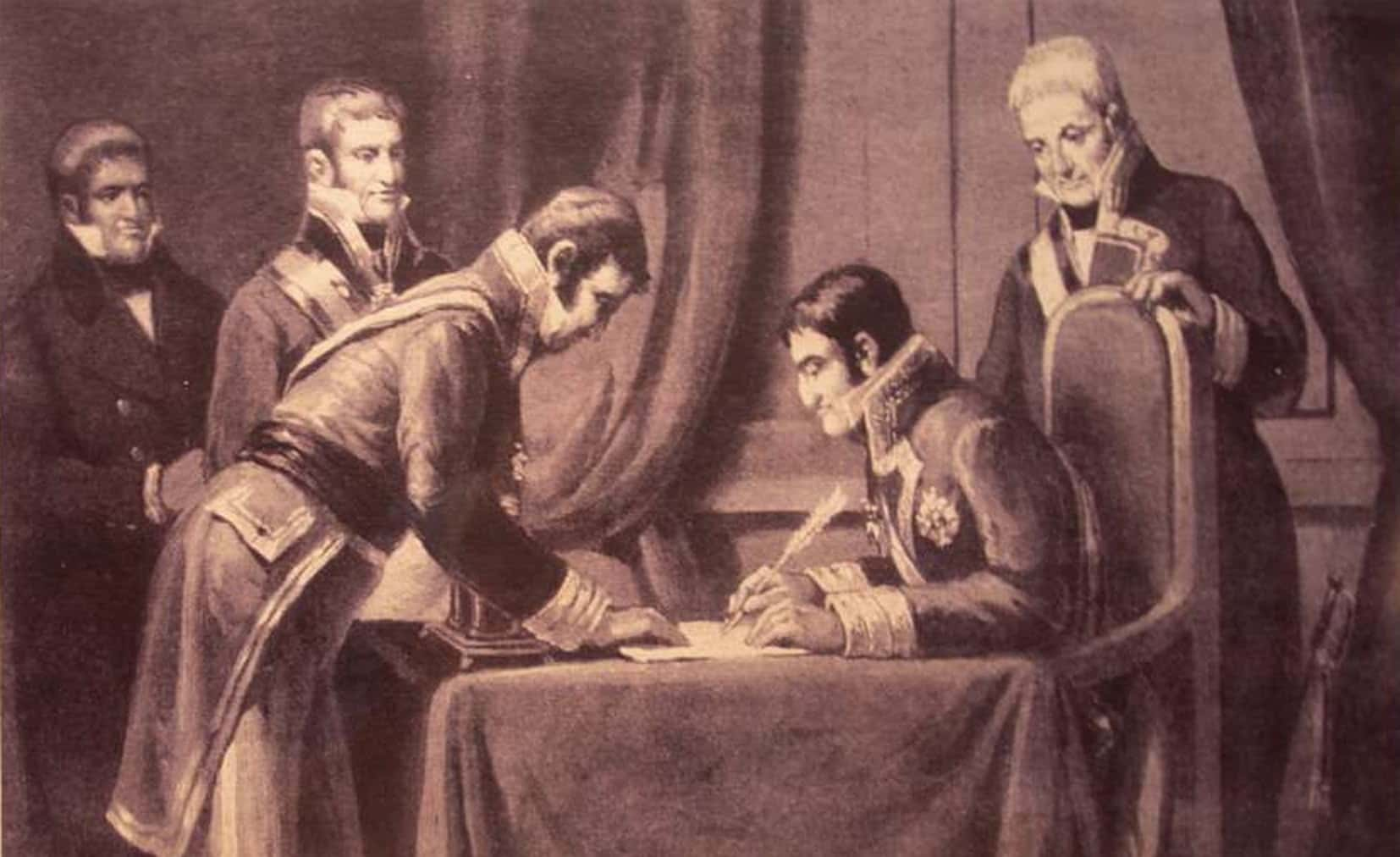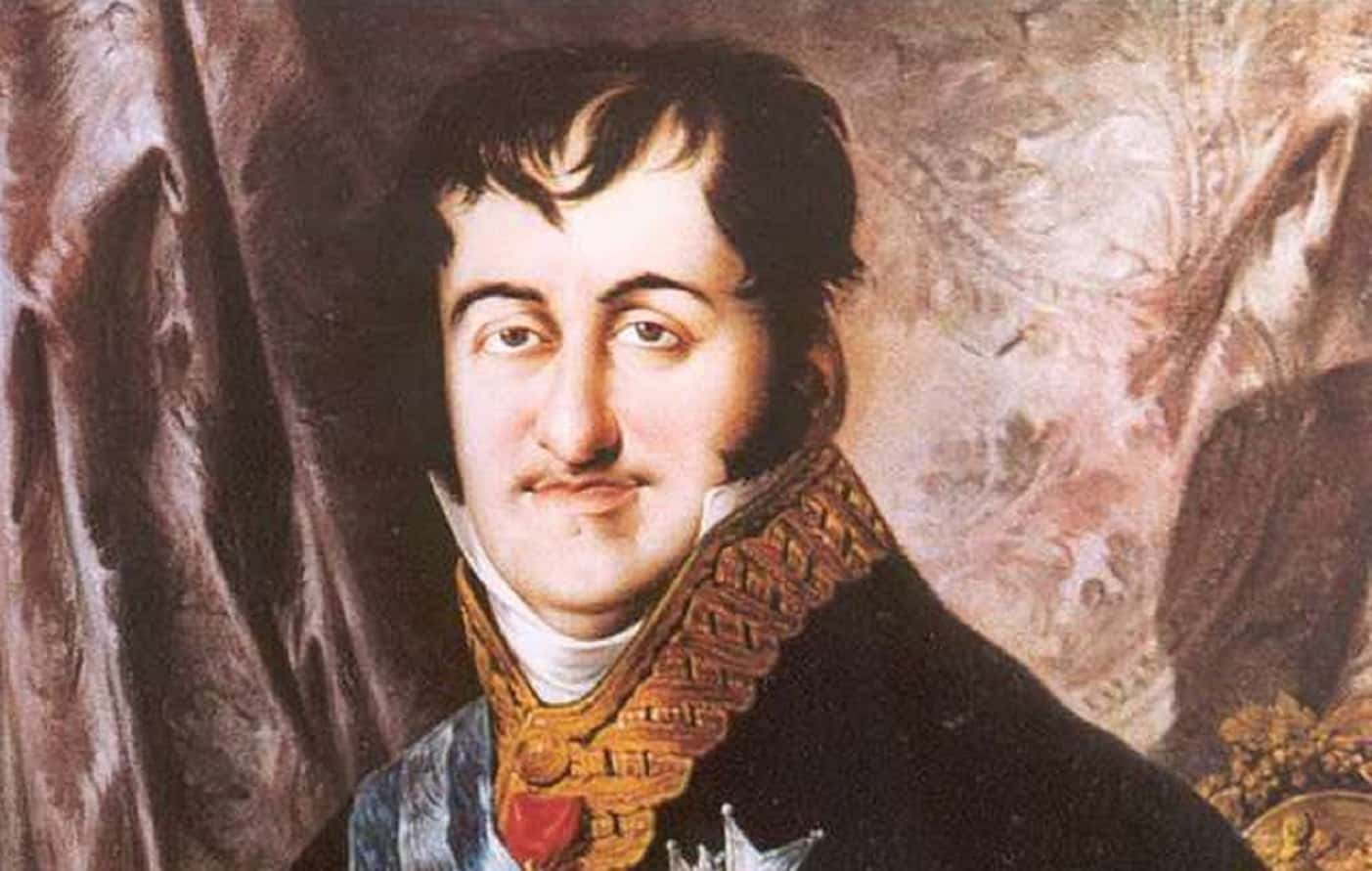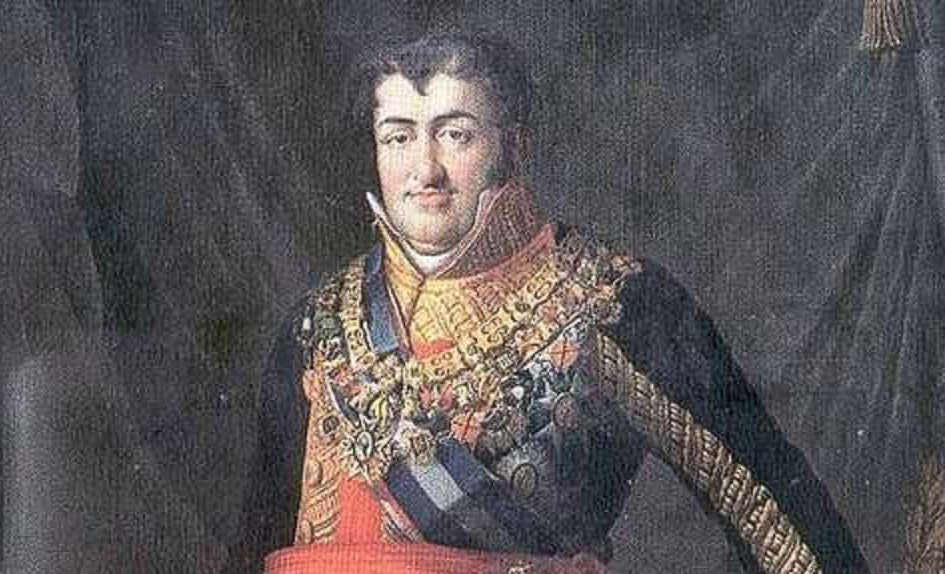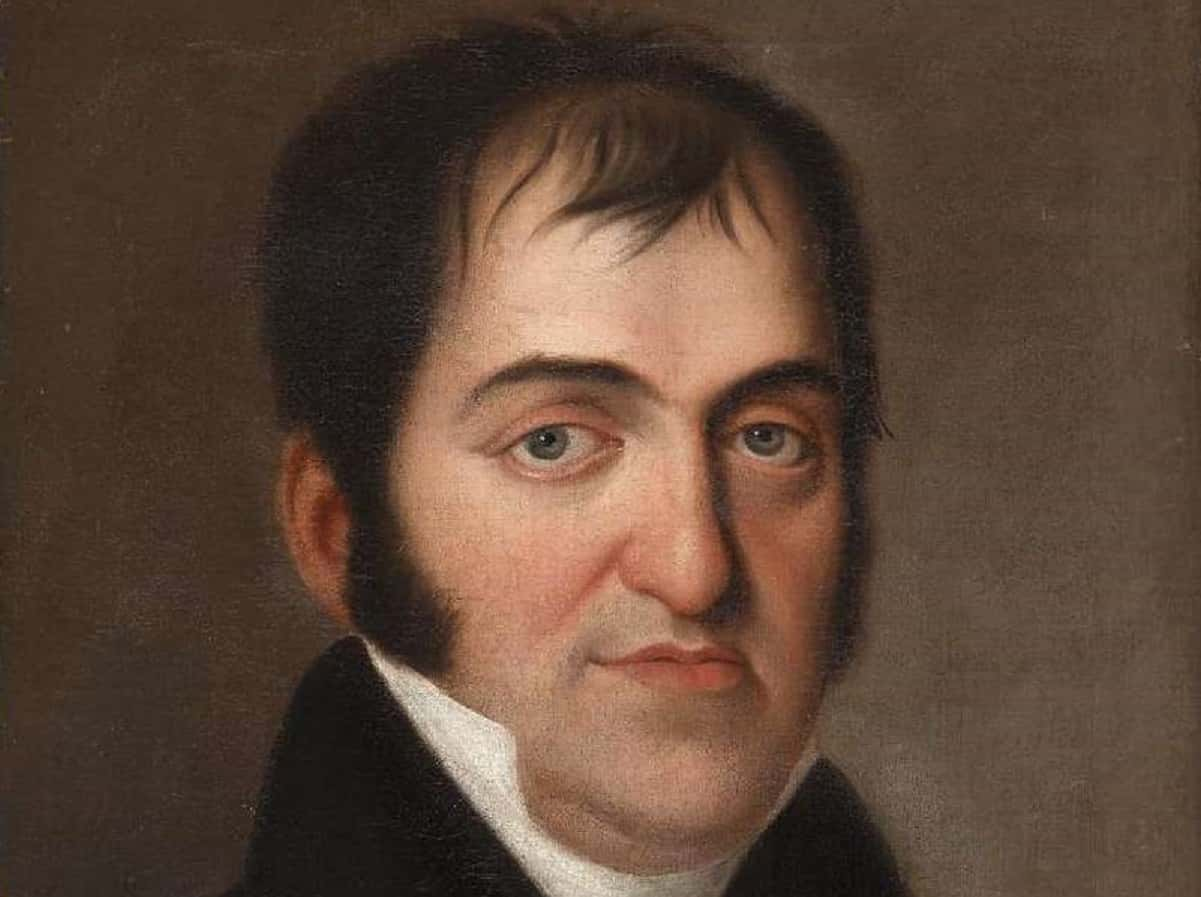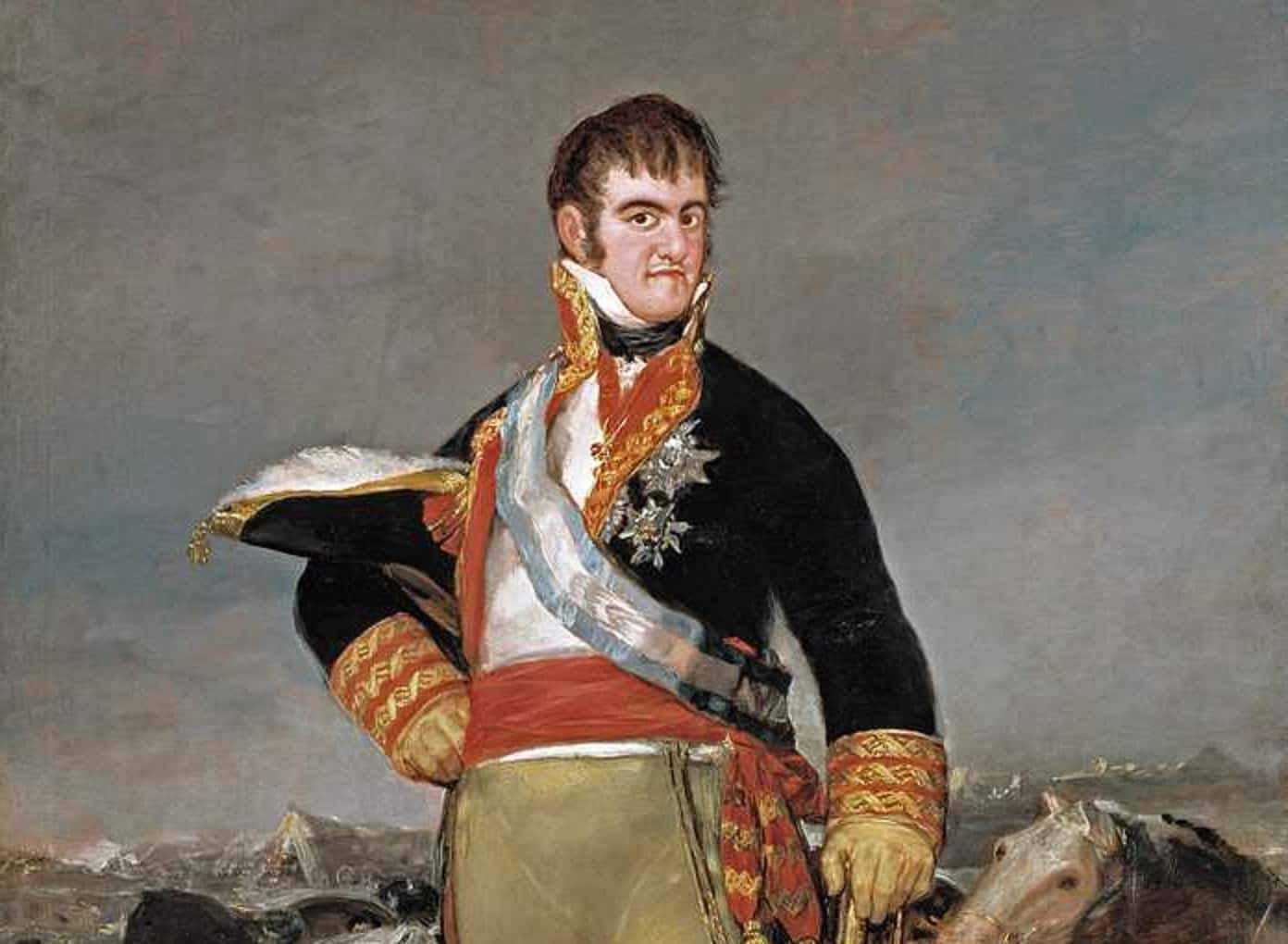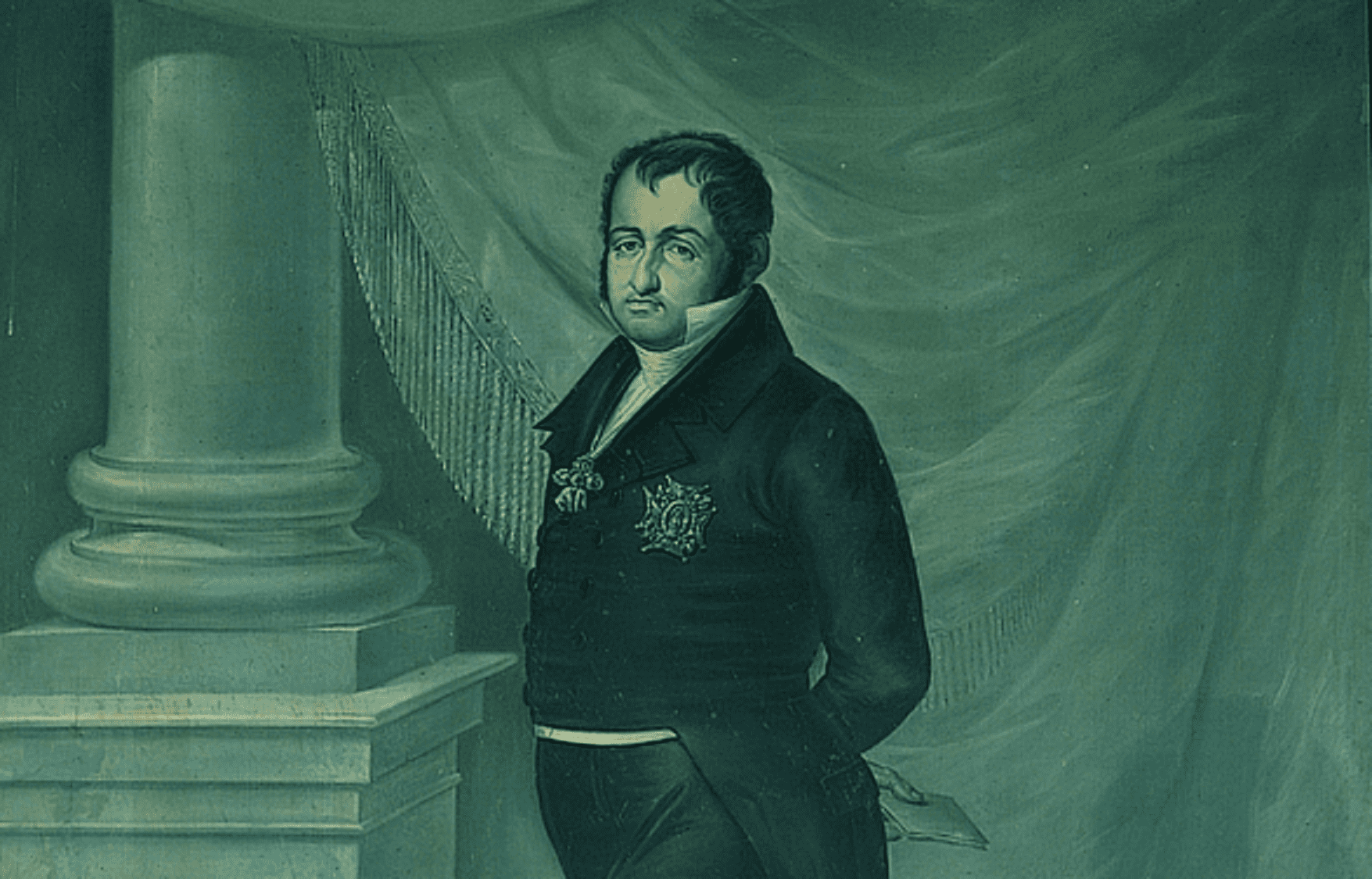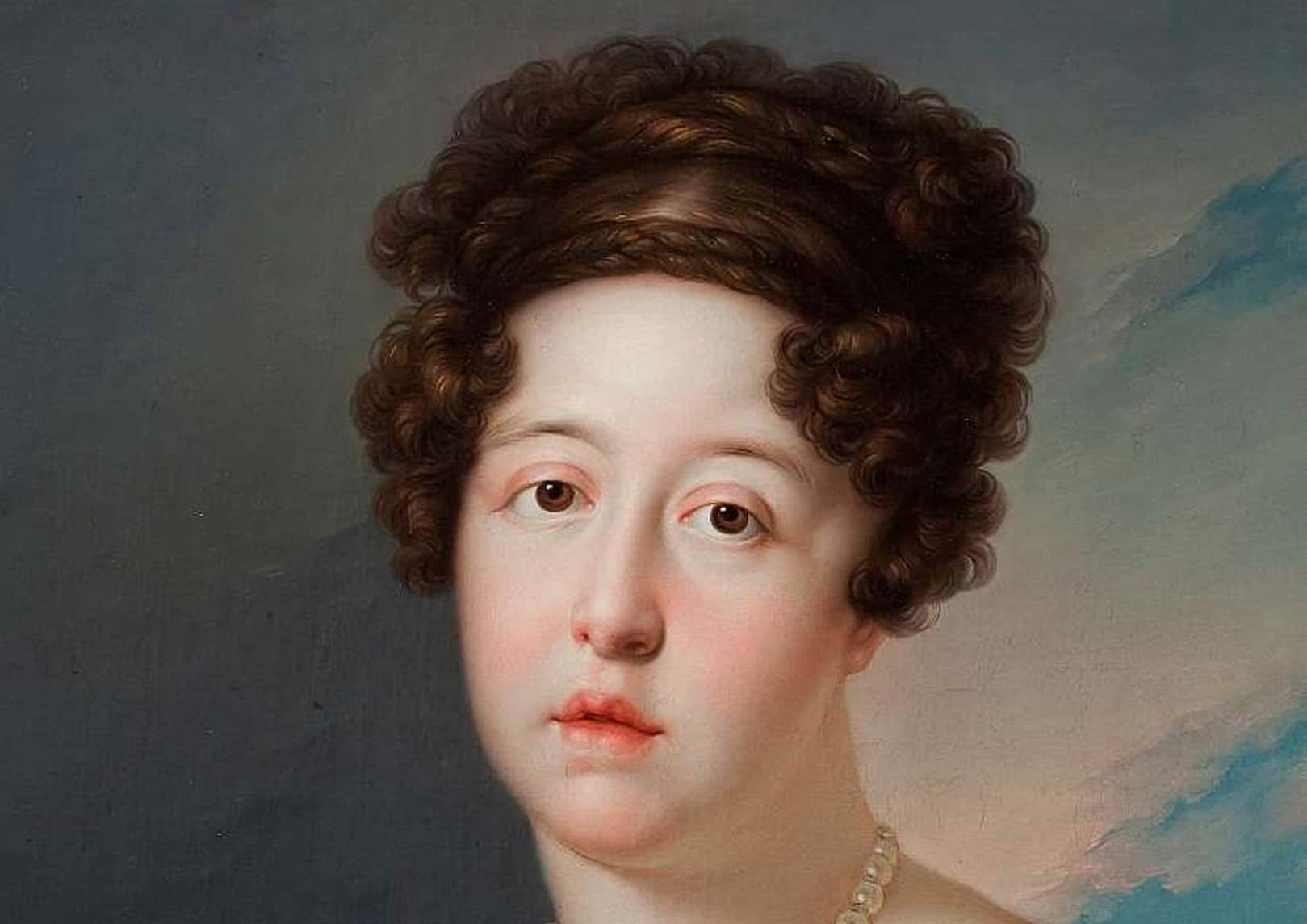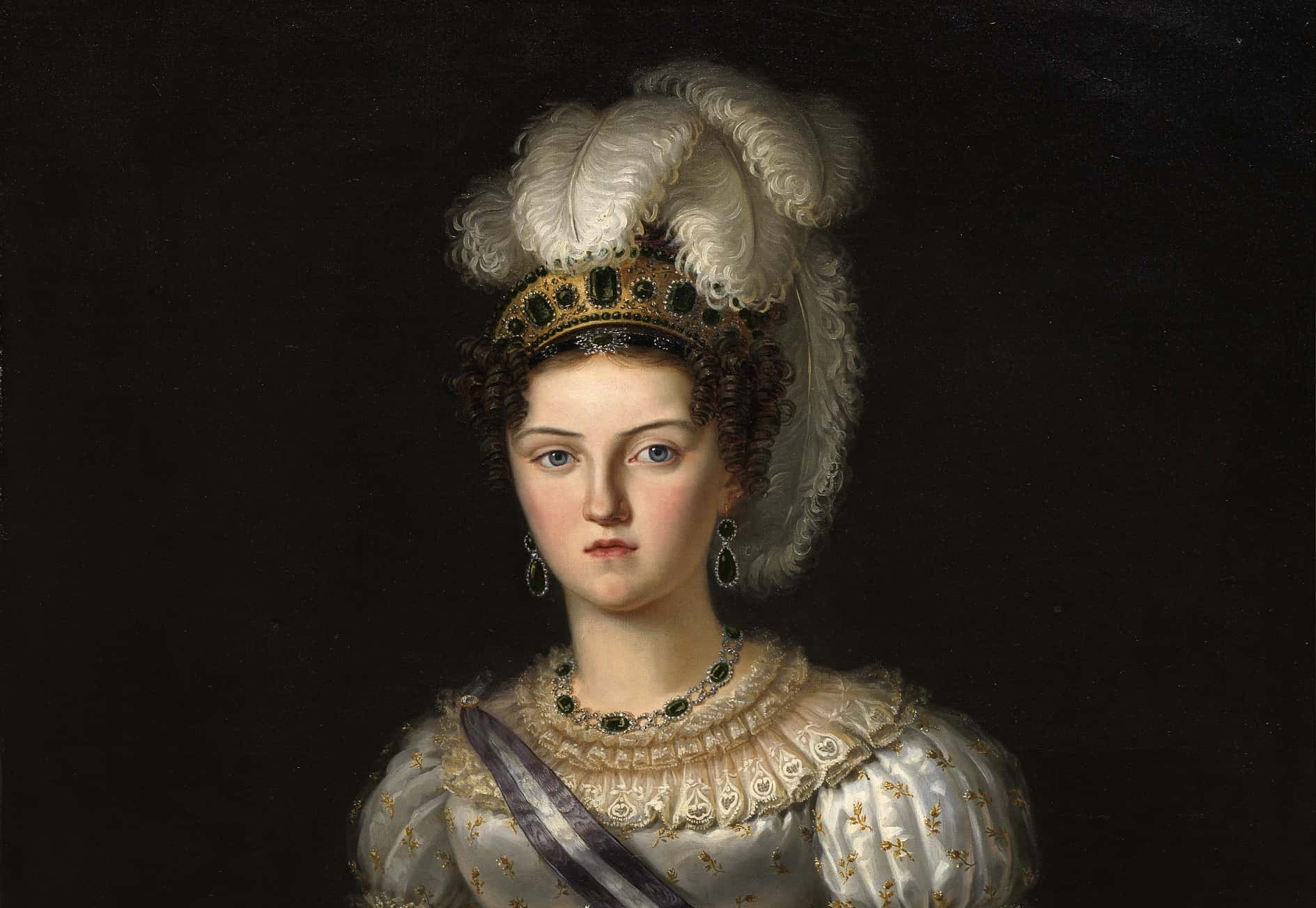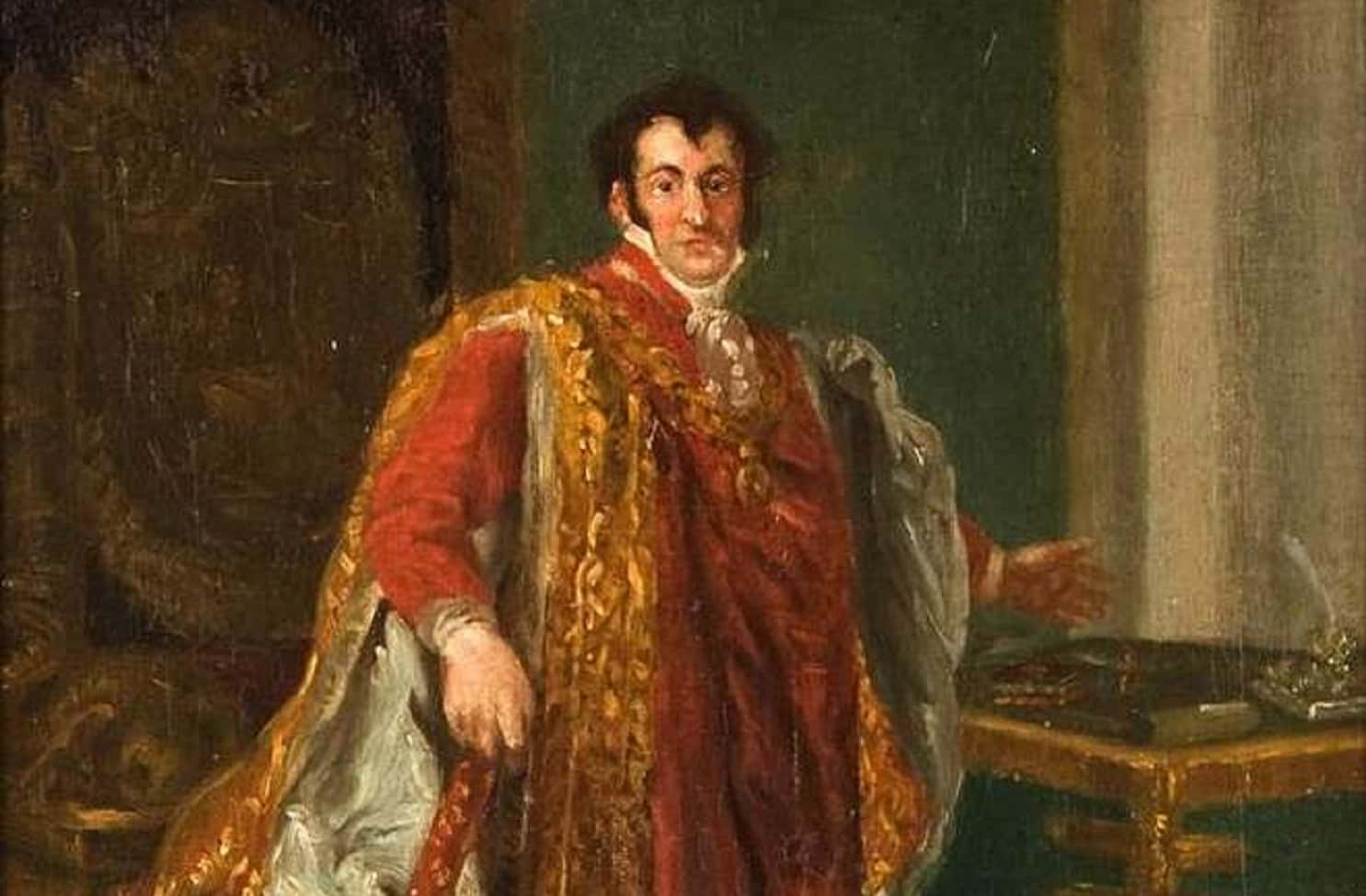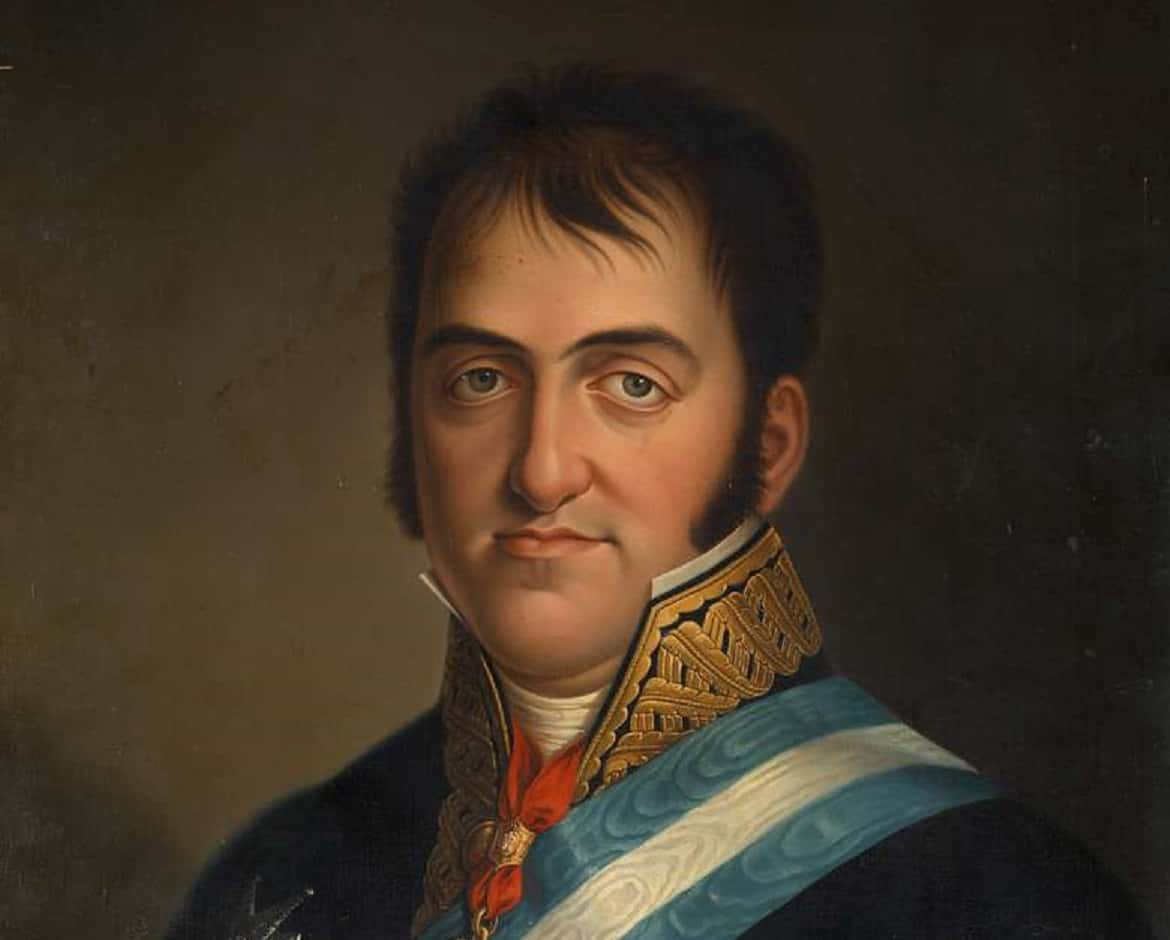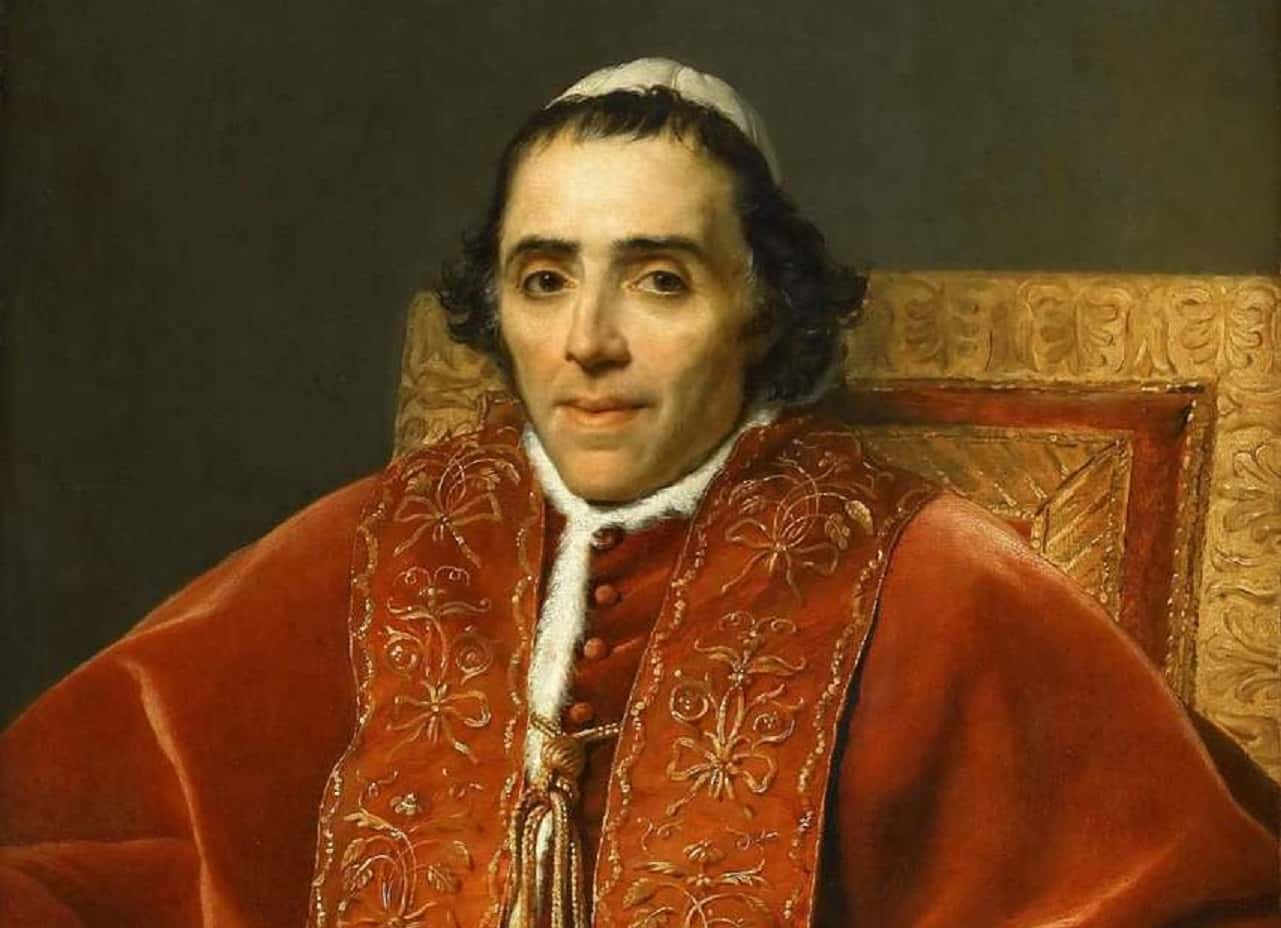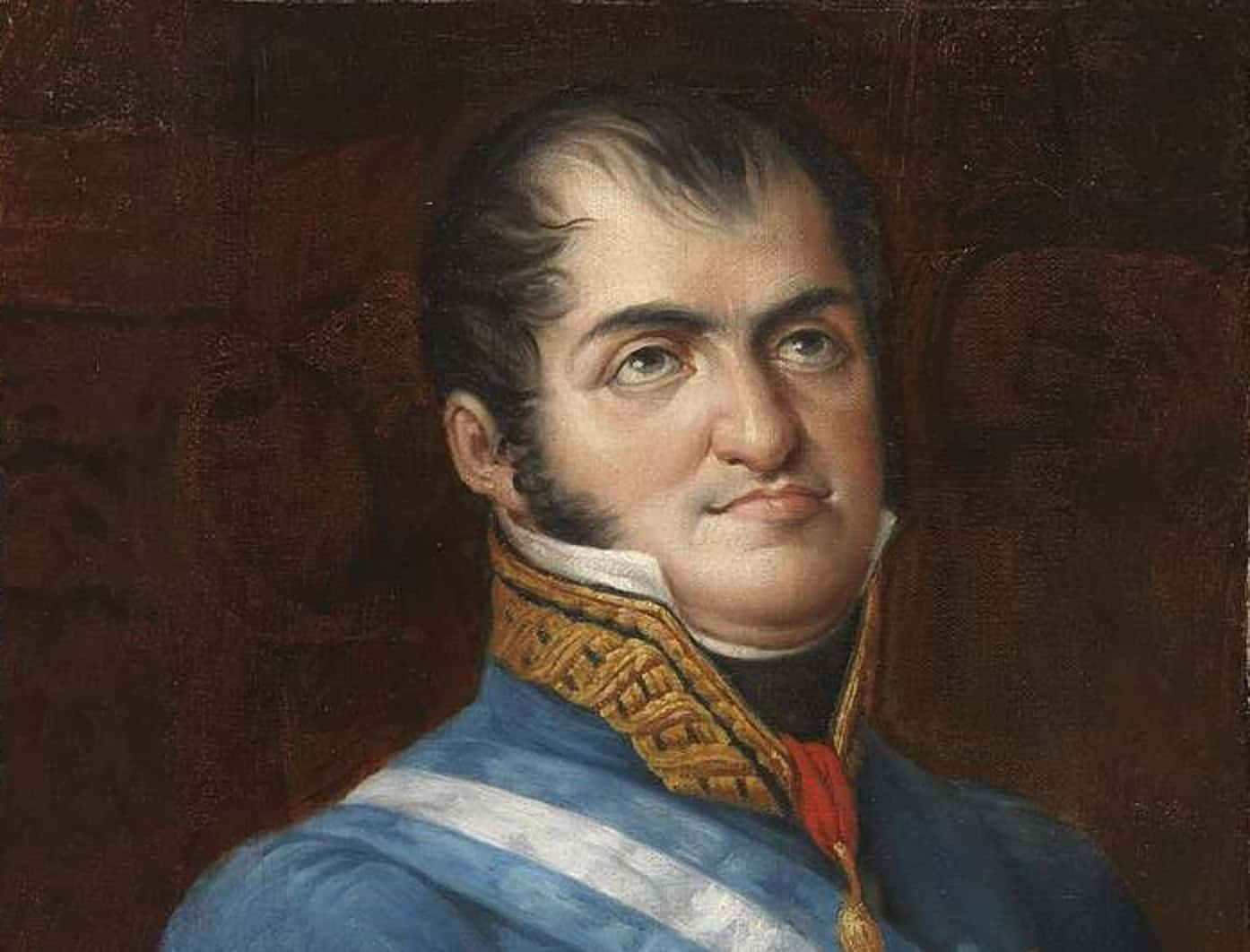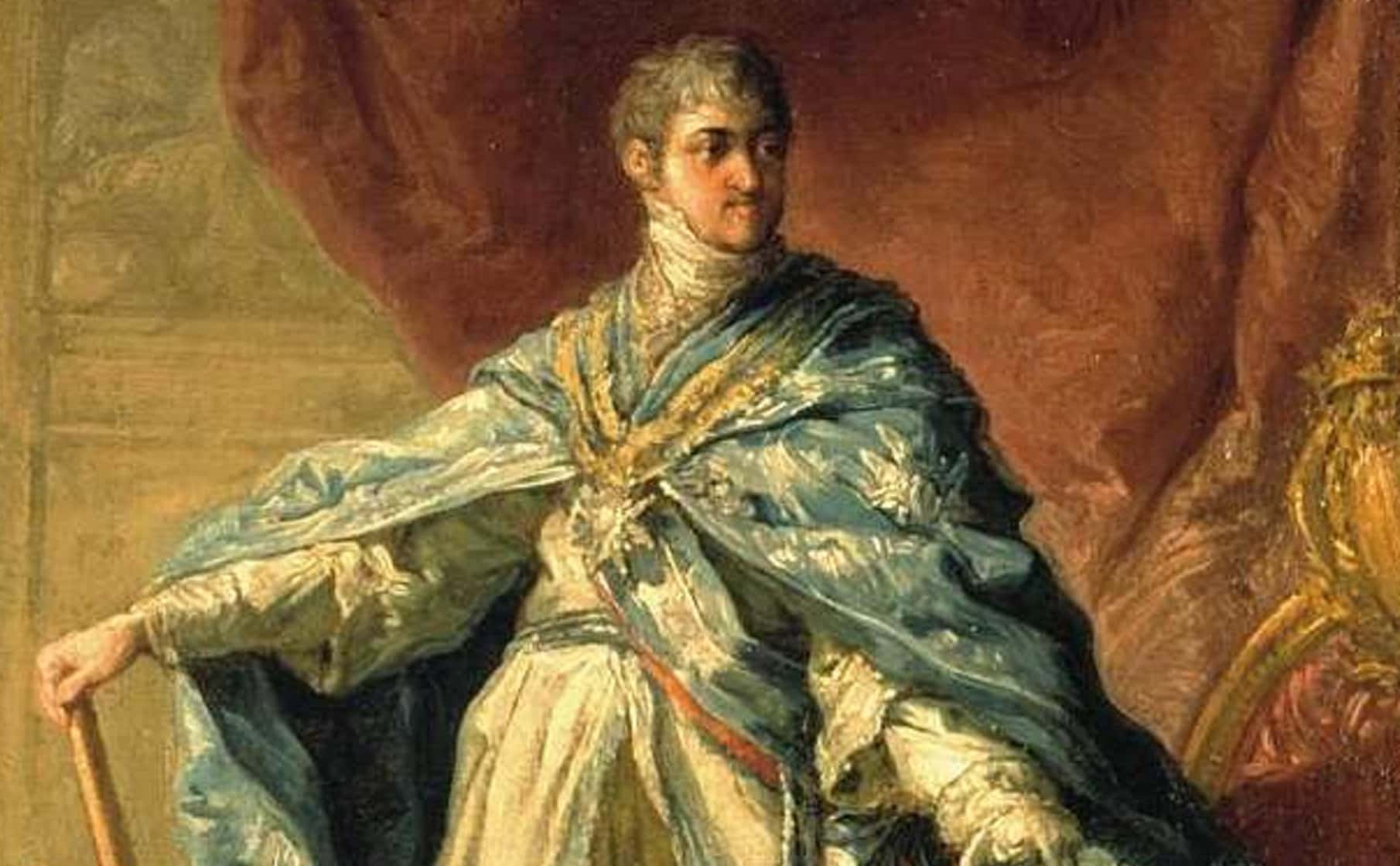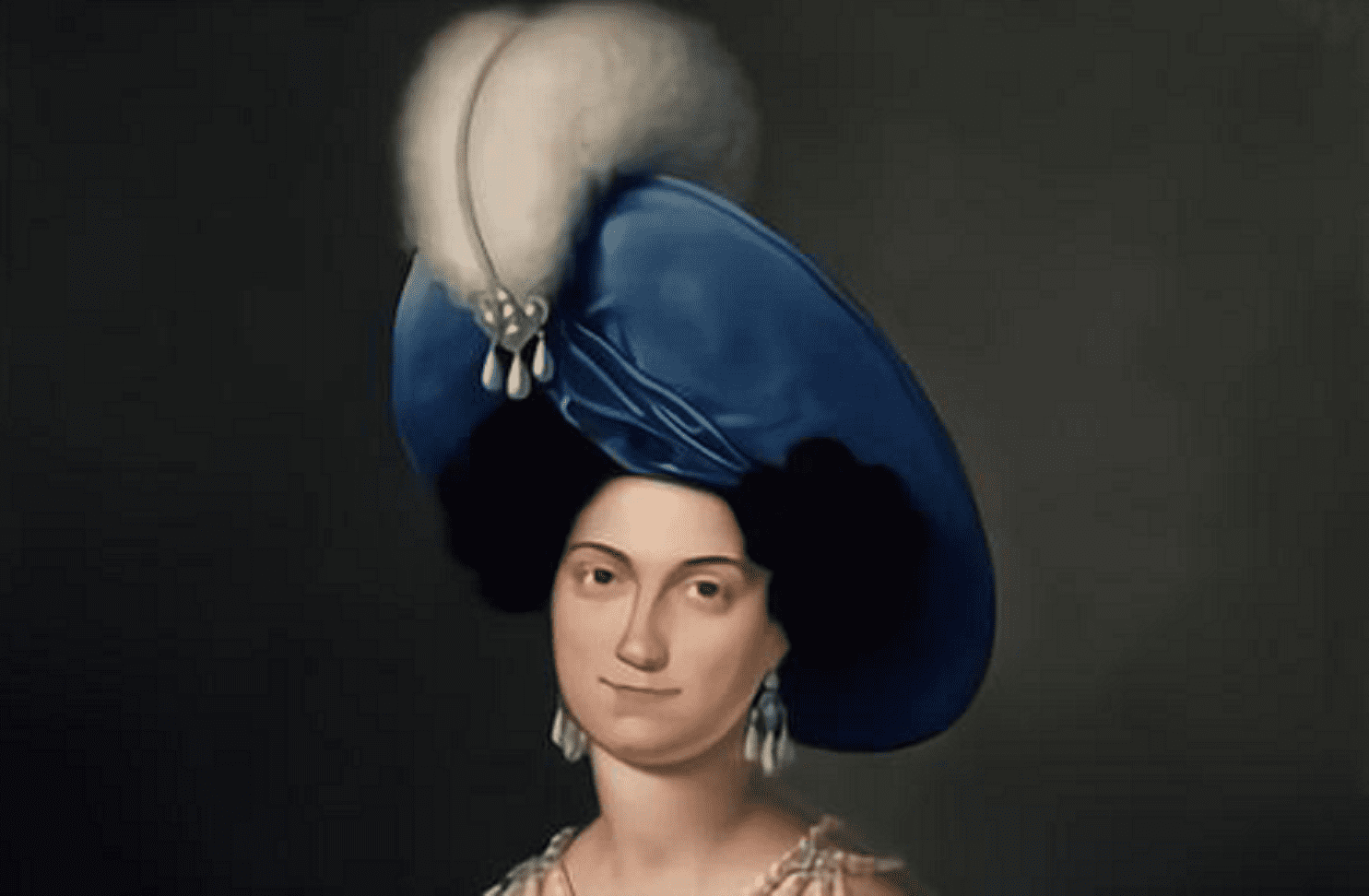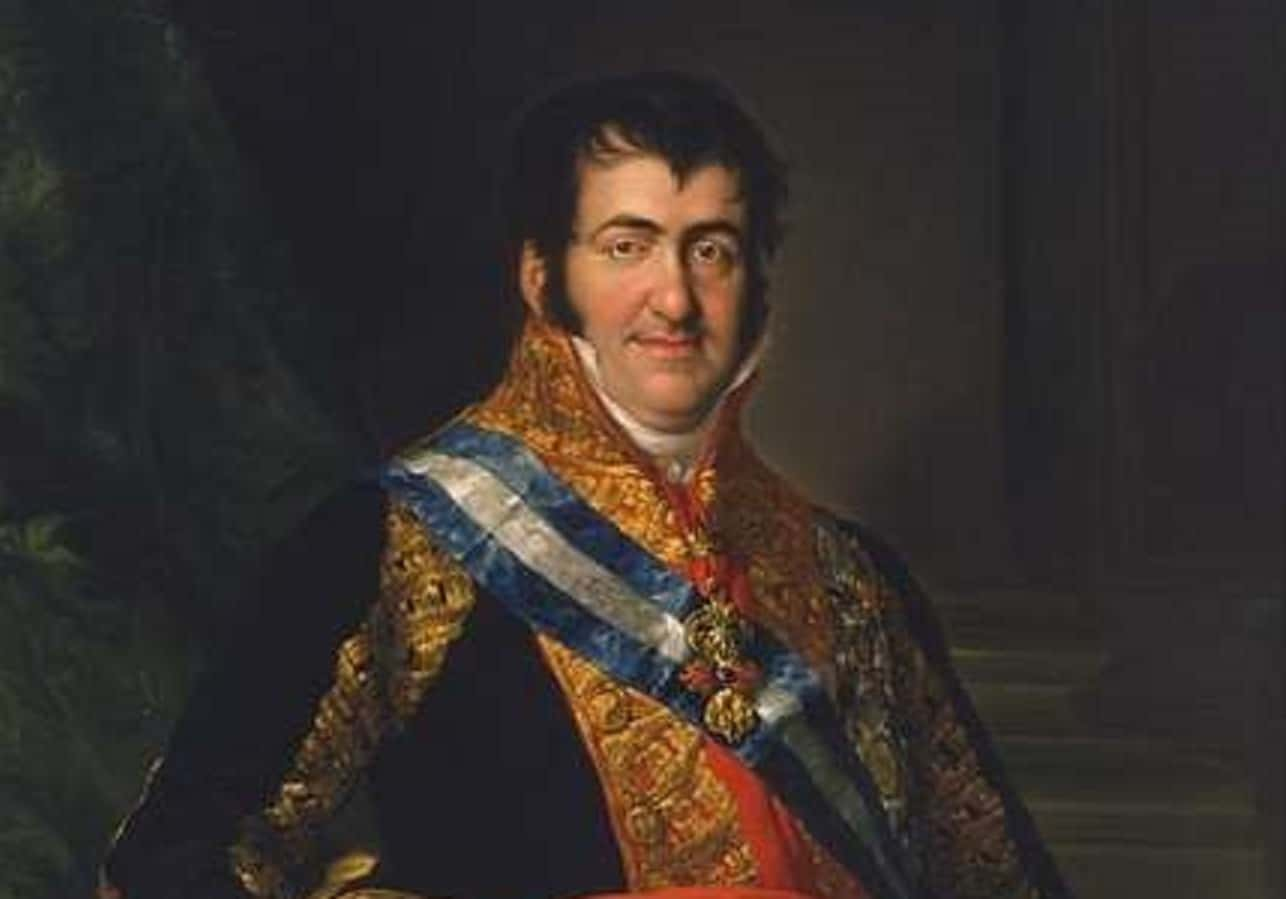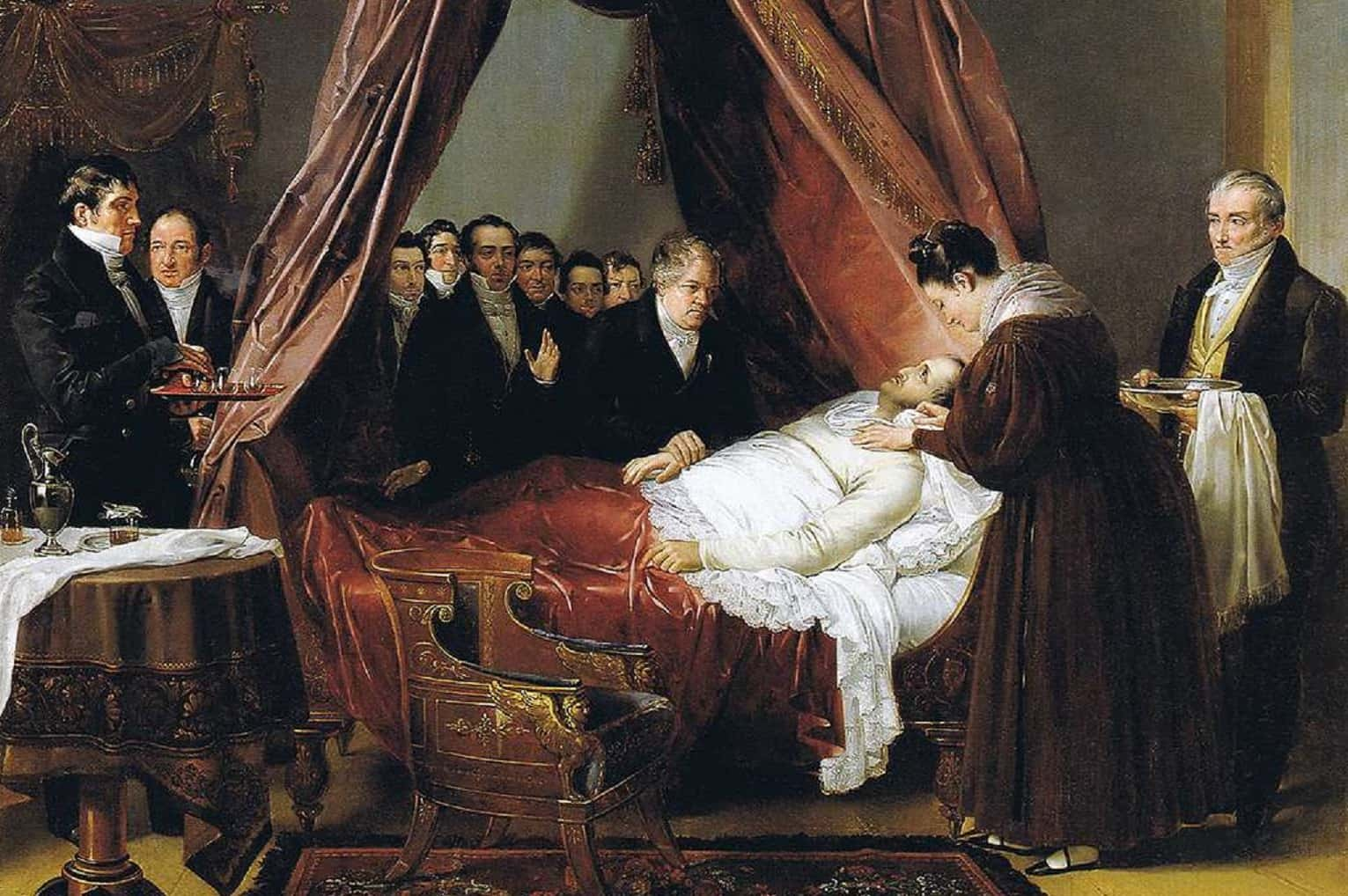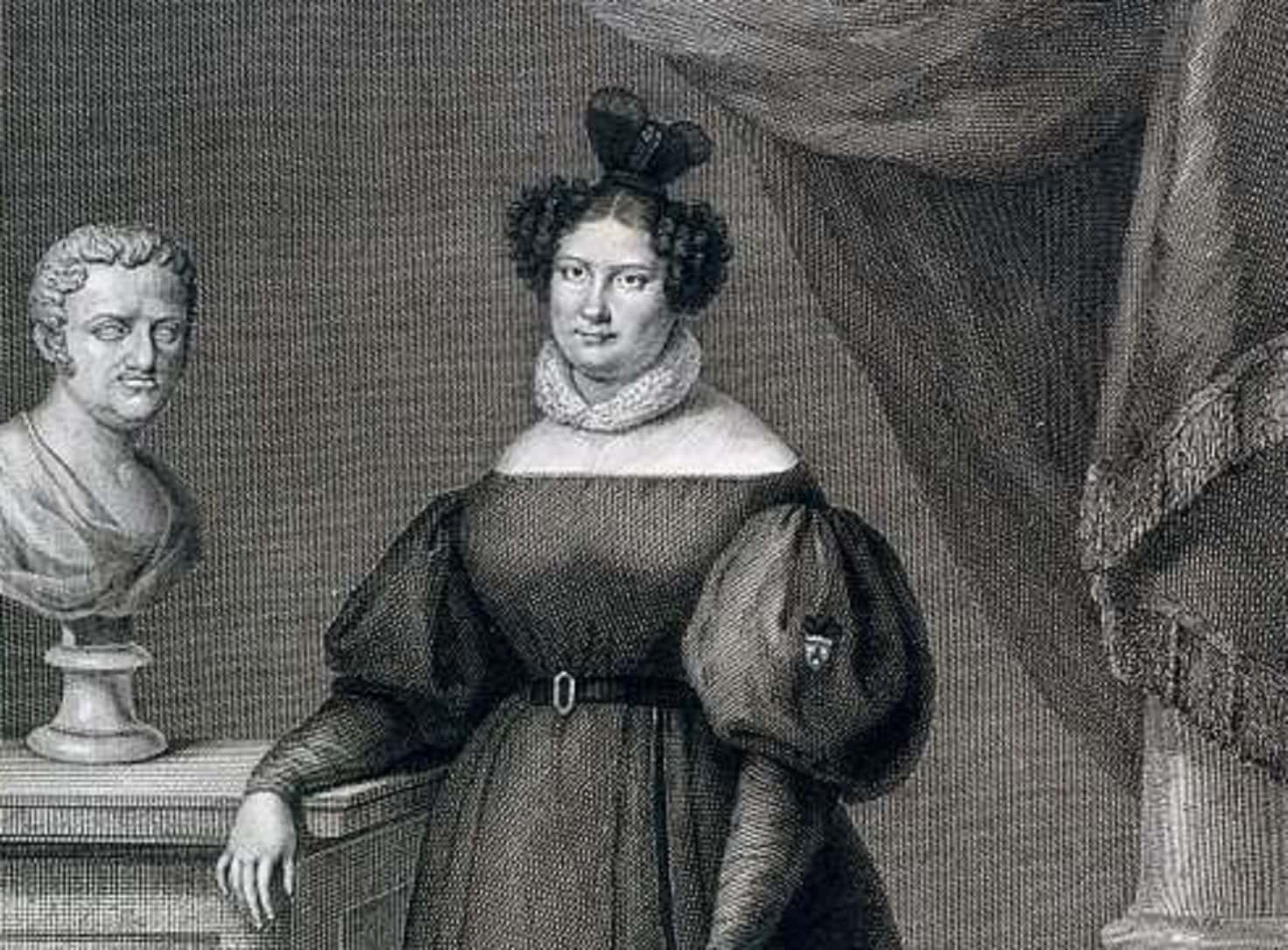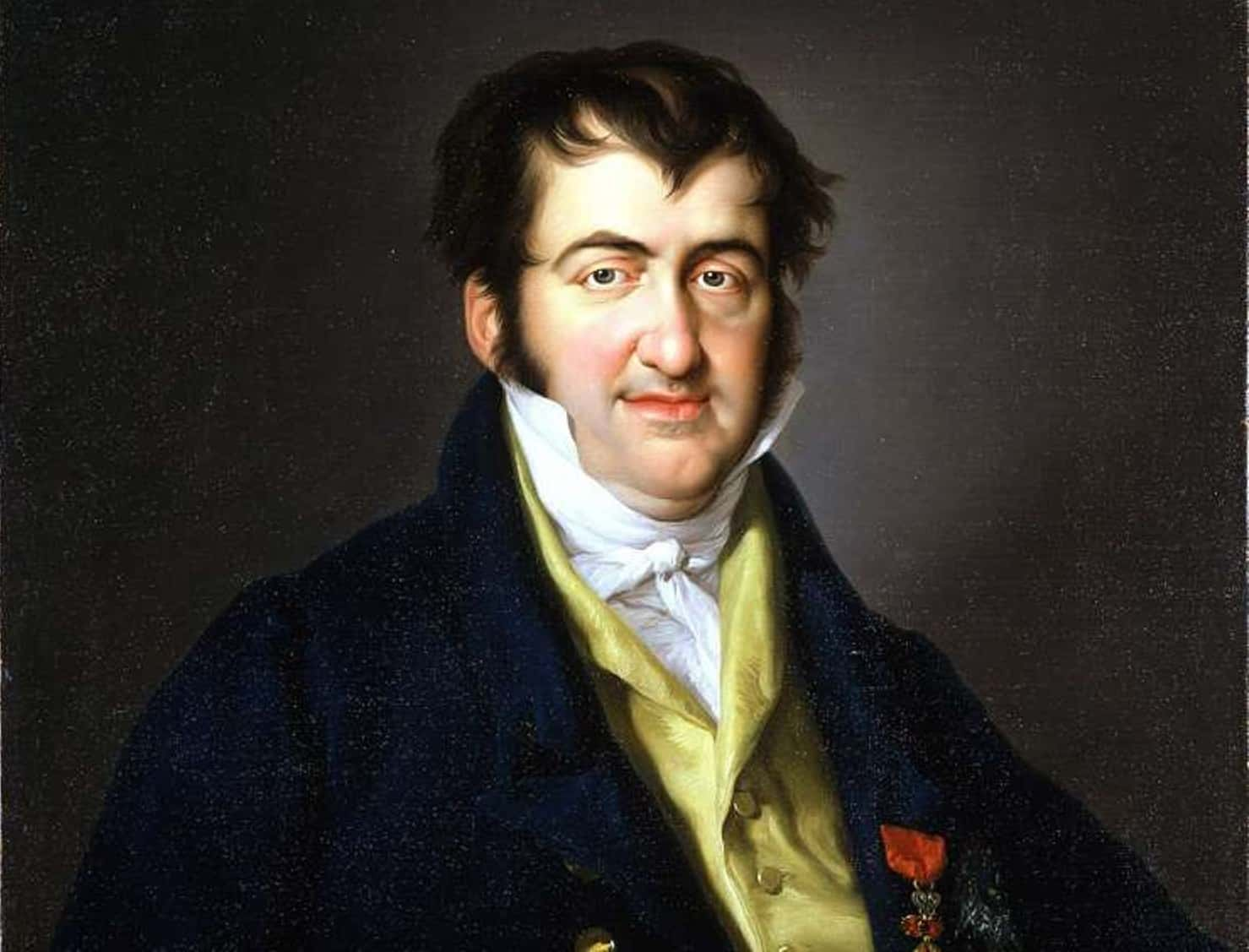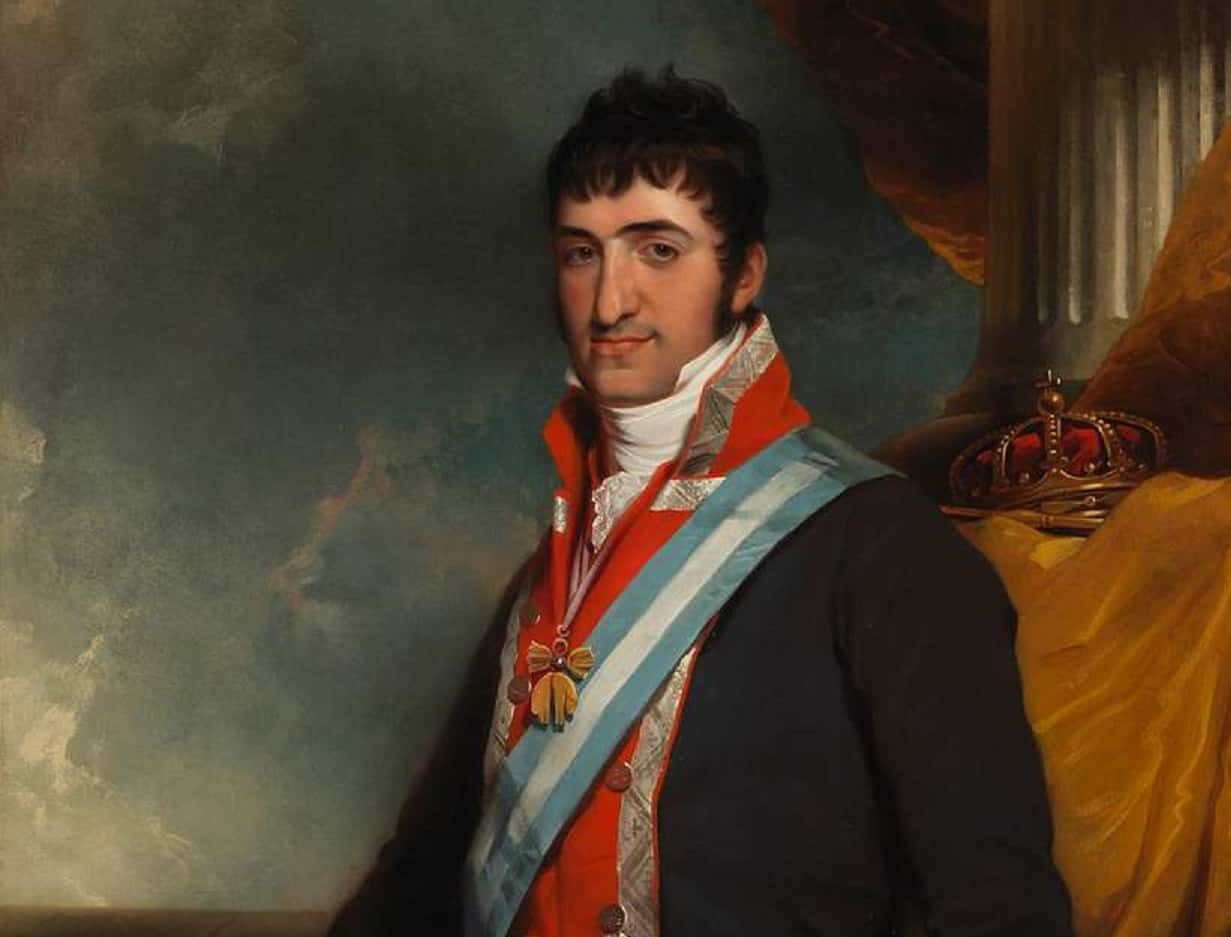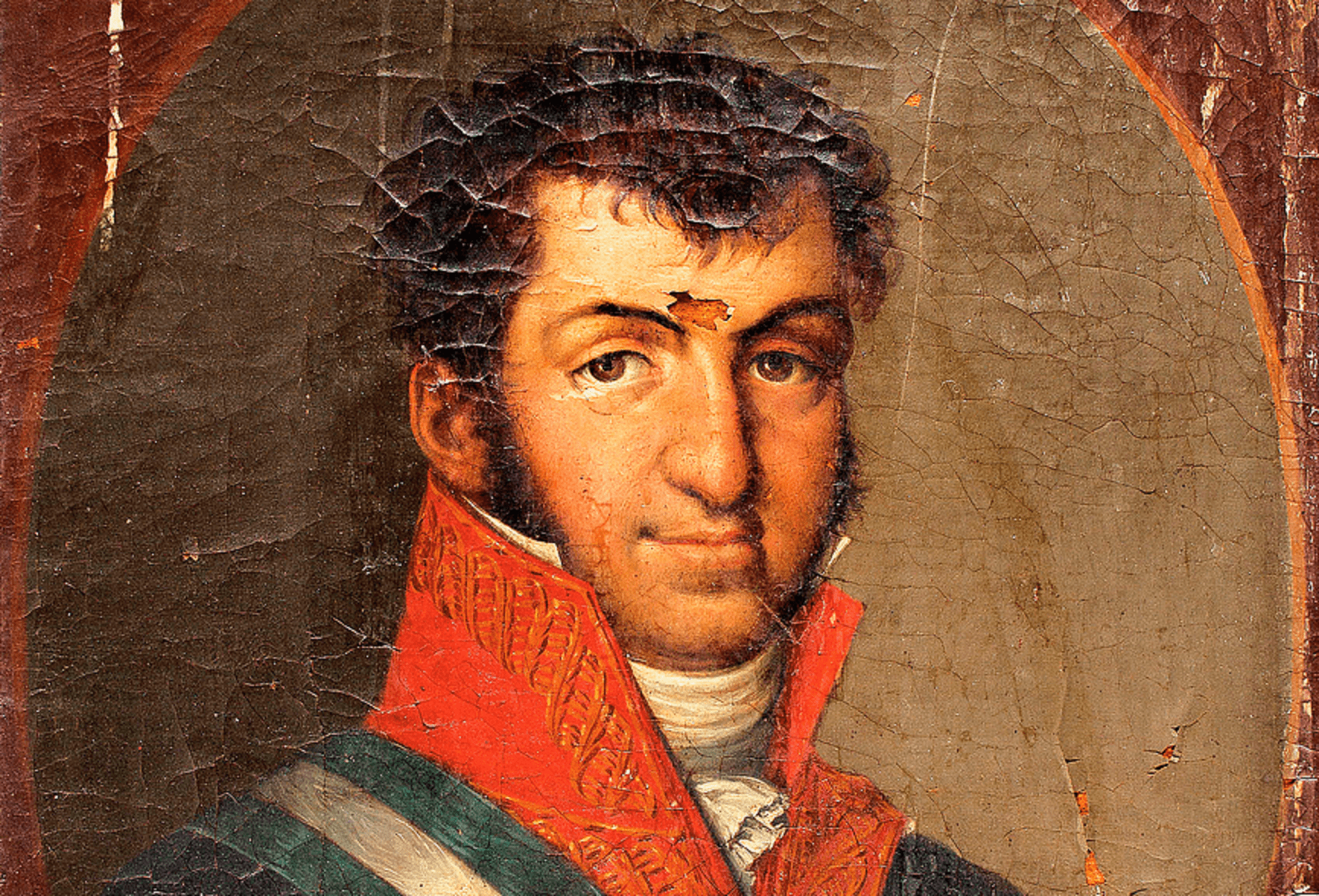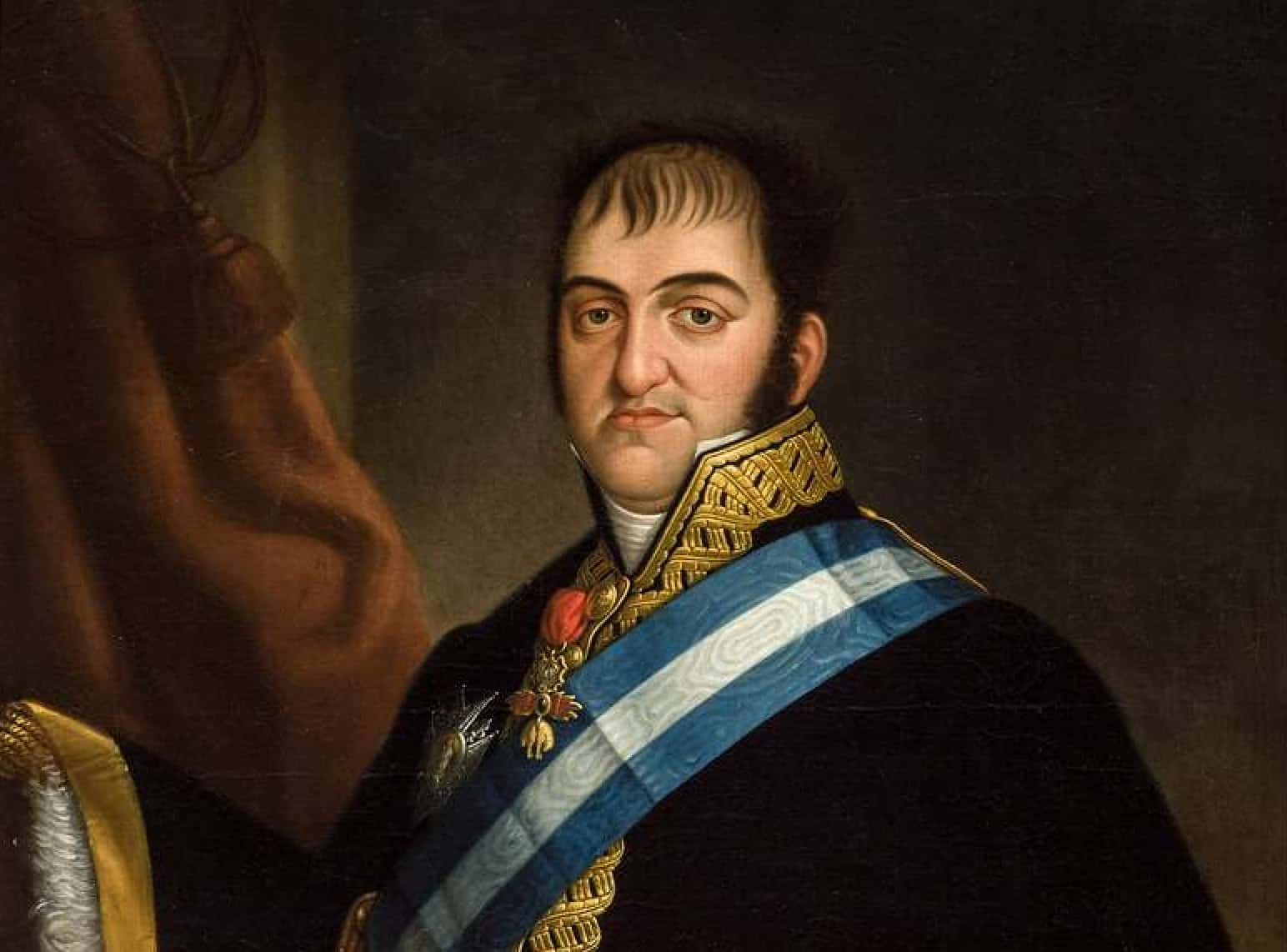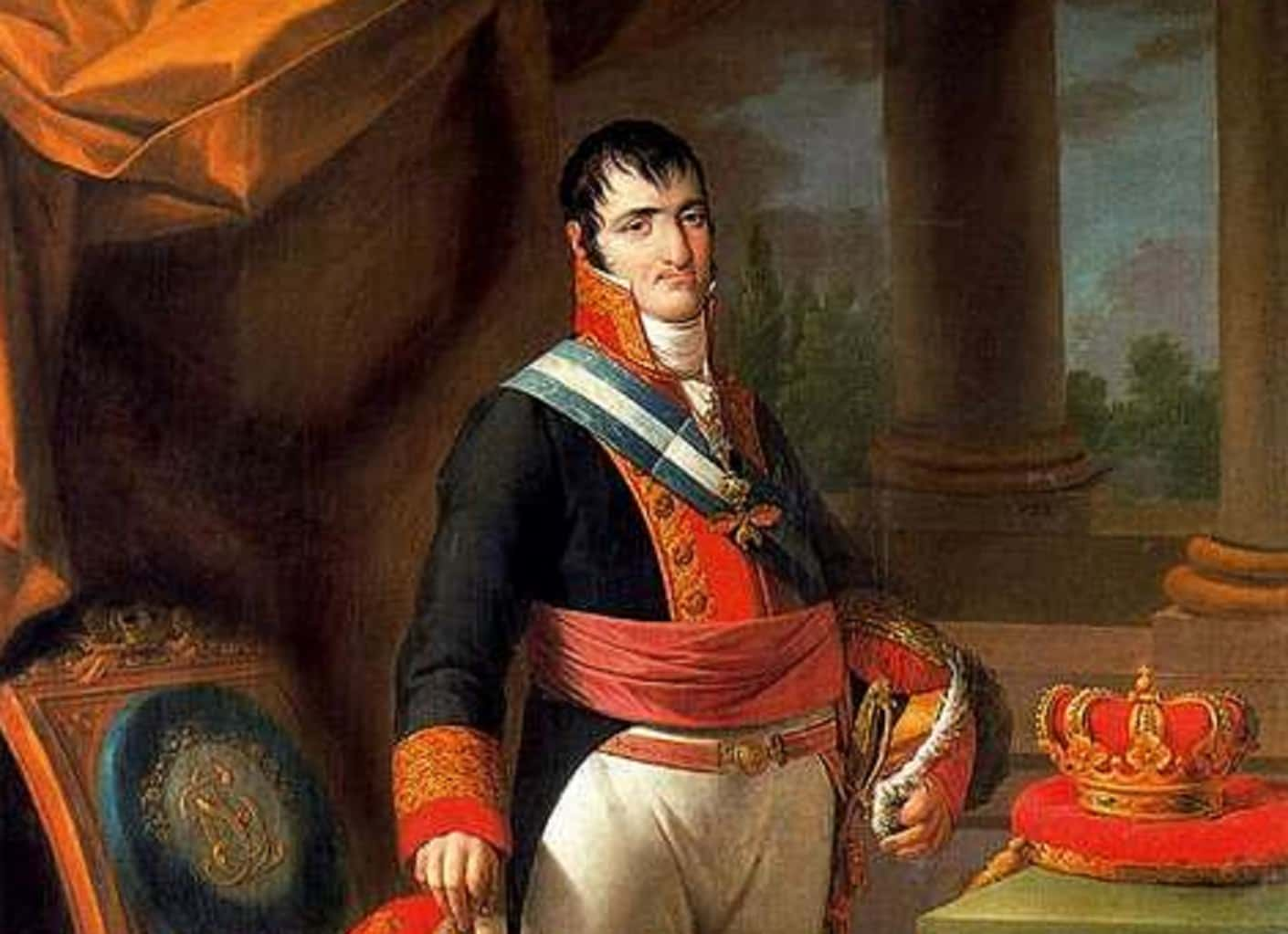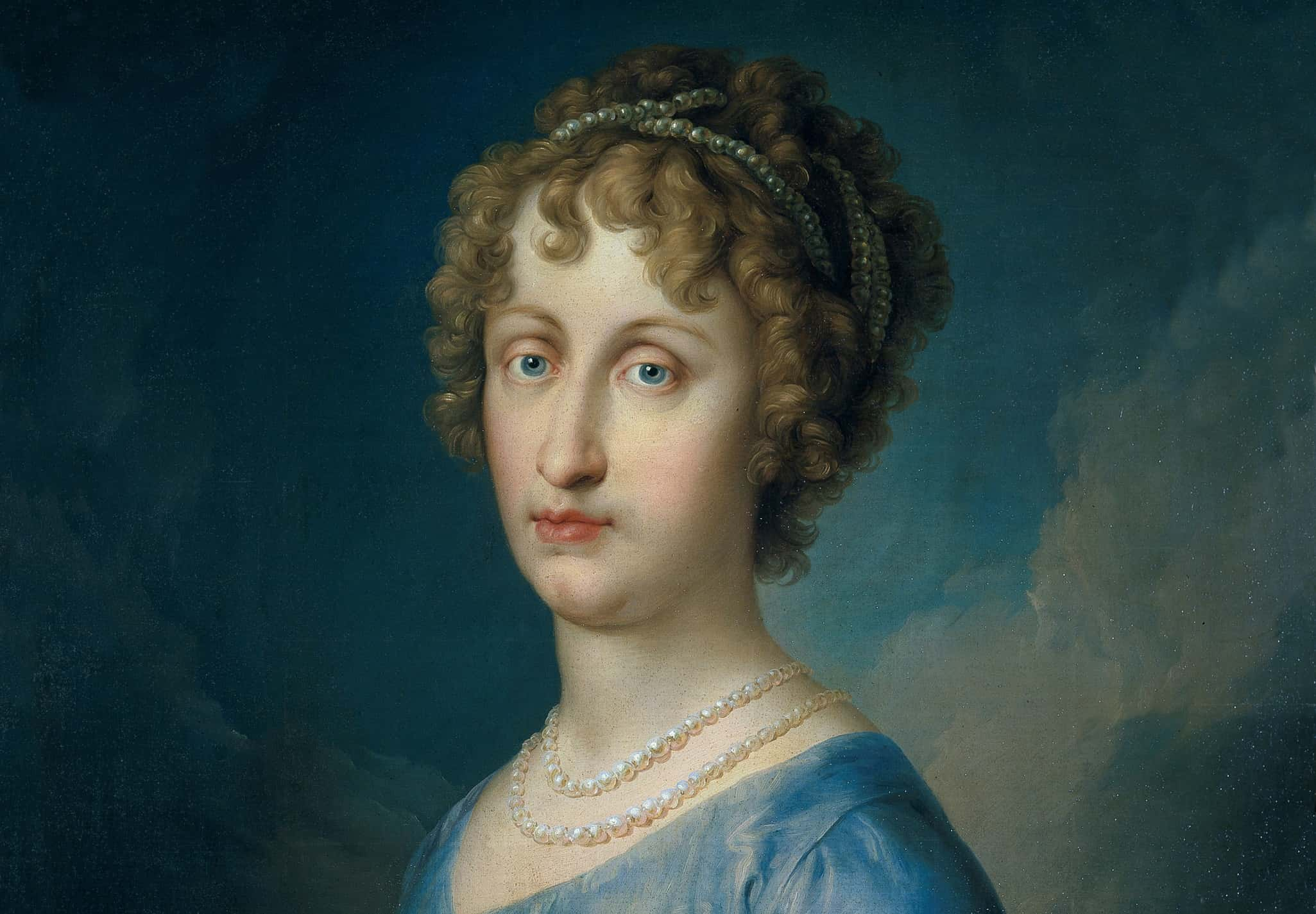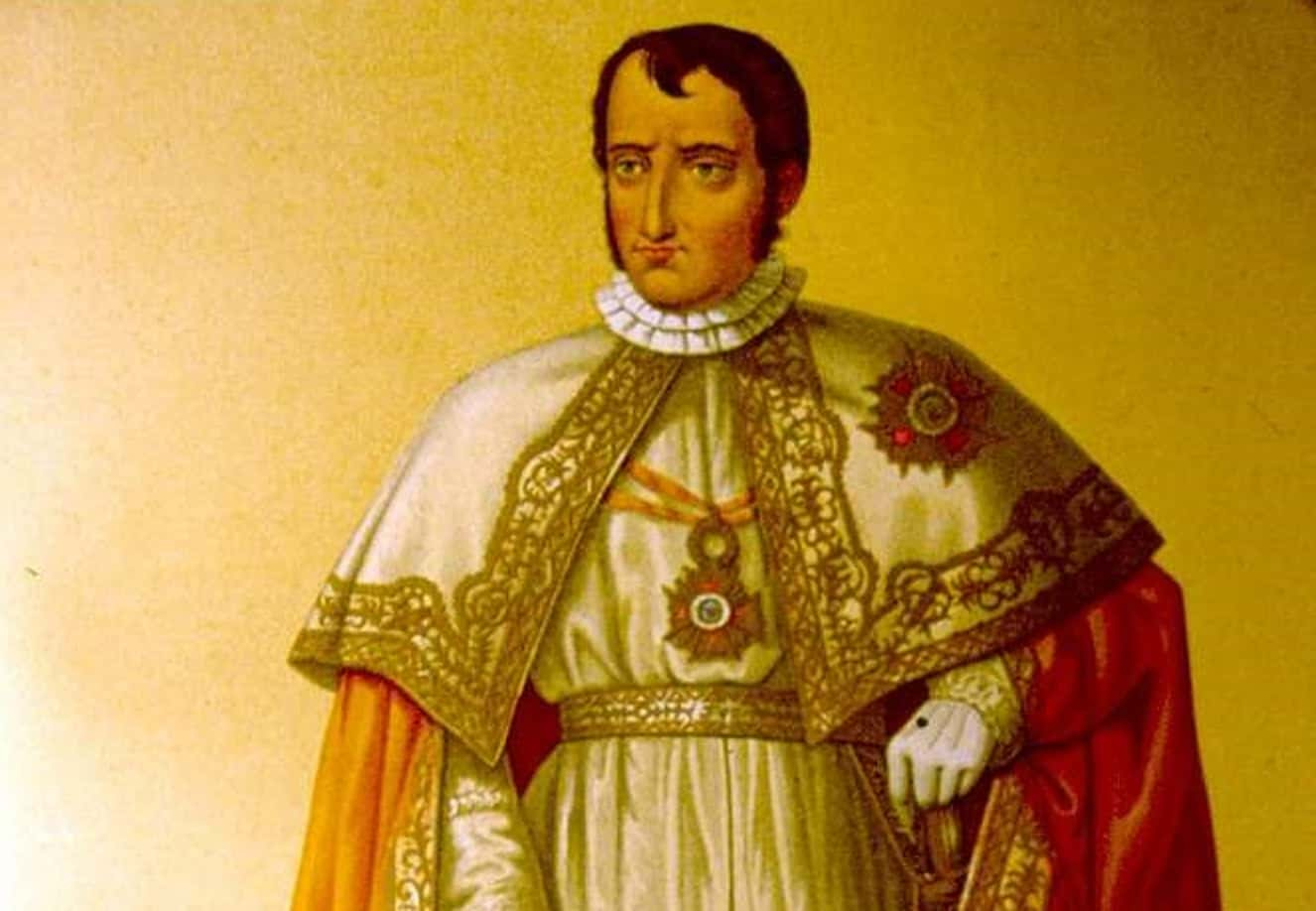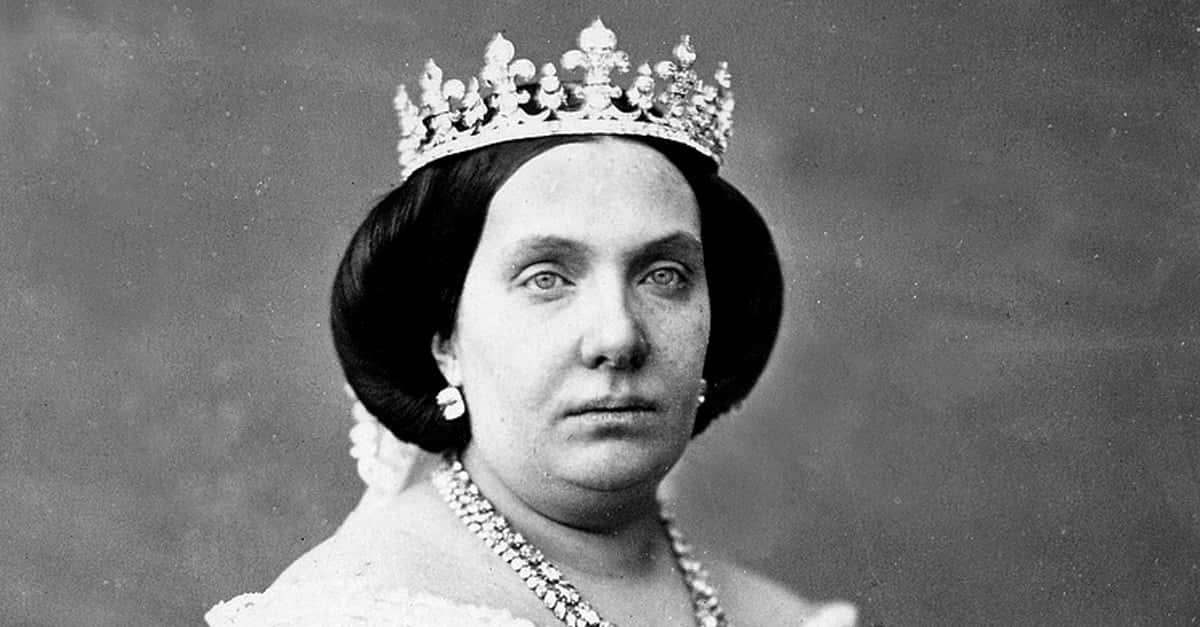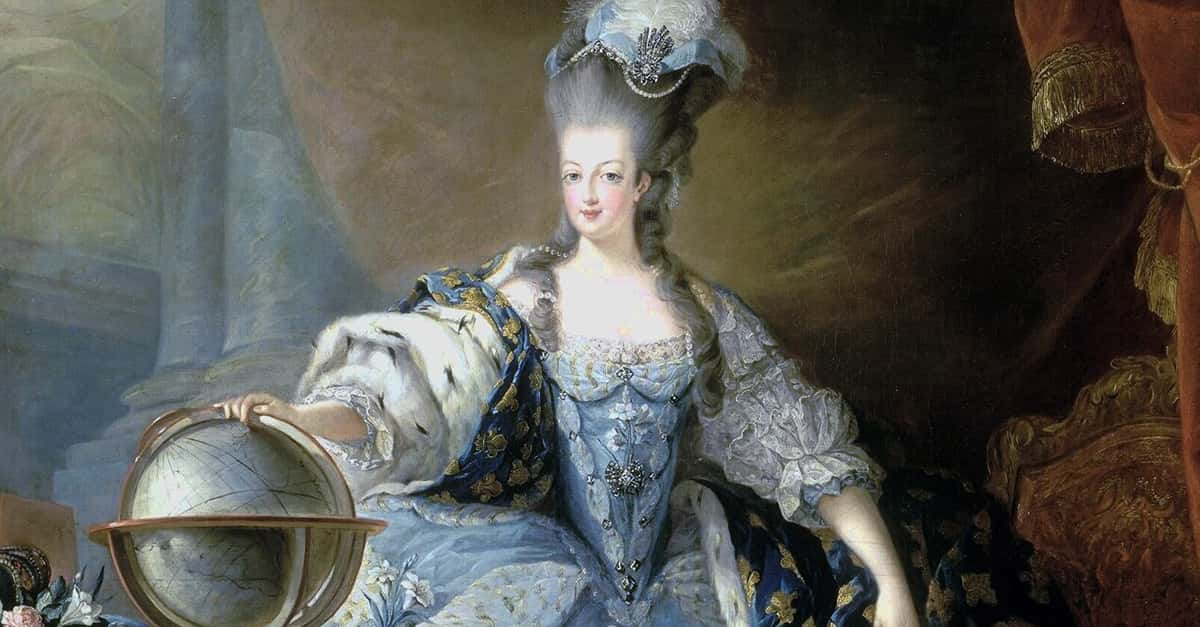Rebellious colonies, bankruptcy, warring factions, and Napoleon: The challenges facing Spain in the early 1800s would’ve challenged the best of Kings. But Ferdinand VII was the worst of them. Here’s how a man with a huge “package” destroyed Spain in huge ways.
1. He Had Mommy Issues
As the eldest son of Charles IV of Spain and Maria Luisa of Parma, Ferdinand VII was destined to be king. But there were dark secrets hidden within Spain’s most illustrious family.
Ferdinand VII hated his parents, especially his mom—and the feeling was mutual. Maria and her lover Manuel Godoy ran Spain while her husband ignored his country and family. She loved Godoy as much as she hated Ferdinand VII—and it fanned the flames of rebellion and revenge.
2. He Had An Enemy
Ferdinand VII was not happy, and it was all thanks to the Terrible Trio: Charles IV, Maria Luisa, and Godoy. His mother's side piece had it out for him and intentionally excluded him from the government. But that wasn't all.
Godoy also threatened Ferdinand with disinheritance. Ferdinand, like many people in his position, acted out. But as we'll soon see, he took it way too far.
3. He Wasn’t Good Looking
It wasn’t just his wife, Maria Antonia, who quivered at the sight of Ferdinand. In fact, most people didn’t find him attractive. An unknown writer even roasted Ferdinand VII in his own memoir. The author described him as “large beyond proportion," and then ripped into his poor health. Oh, but that wasn't the worst insult.
This writer also shared that Ferdinand's breath stank beyond belief. However, they failed to mention his strangest and biggest body part. You might want to sit down for this one.
4. He Was Big
Ferdinand VII had a big everything: country, empire, fortune, and ambitions. Also, he was notoriously hung like a horse. But was this shocking allegation actually true? Well, not everything is as it seems. In 19th-century Spain, people had a very surprising perspective on large "packages."
5. His Size Wasn’t Positive
In the present day, a large “package” is the male beauty standard. But this couldn’t have been further from reality in 19th-century Spain. They created their beauty standard from the Ancient Greeks, who found large “packages” monstrous. To be fair, Ferdinand VII Junior wasn’t just humongous, his member also had an…interesting shape.
6. He Had A Weird Shape
Turns out, size isn’t everything. In another accidental roast, a historian described Ferdinand VII’s privates as “thin as a stick of sealing wax at its base, thick as a fist on his limb, Also, as long as a billiard cue". Feel free to use your imagination. This explained why he needed special items to do the horizontal tango.
7. He Couldn’t Do The Deed
Ferdinand VII’s endowment turned out to be more of a curse than a blessing. It was so large and bizarrely shaped that he couldn’t be intimate without help. Specifically, a custom cushion to rest his privates on. All of this explains not only Maria Antonia’s distaste, but also the couple's unsuccessful—and tragic—baby-making attempts.
8. He Lost His Babies
Inbreeding, health issues, strange anatomy, and a distant marriage: The odds were stacked against Ferdinand VII and Maria Antonia’s attempts to produce a child, and most importantly, an heir. Still, the pair fought against the unfortunate hand they'd been dealt. Tragically, their only pregnancies (in 1804 and 1805) ended in miscarriages.
But life had even more tragedies in store for this king-to-be.
9. He Lost His Wife
On May 21, 1807, Ferdinand VII faced a sudden tragedy: His wife unexpectedly passed at only 21. It didn’t take long for conspiracies to circulate that Maria Antonia’s mother had poisoned her. What's more? It didn’t help that the man running the palace apothecary ended his life.
The authorities seized his goodbye letter, and set the gossip mill ablaze. Somehow, these unsolved conspiracies were tame compared to Ferdinand VII's very real conspiracies.

History's most fascinating stories and darkest secrets, delivered to your inbox daily.
10. He Was Manipulated
While his parents trusted Godoy, Ferdinand VII and most of Spain didn’t share this view. People wanted Godoy gone and weren’t above using the heir to make it happen. One of Ferdinand's tutors exploited his resentment and jealousy in a bid to get things done.
The tutor encouraged Ferdinand to reach out to Napoleon Bonaparte: a foreign leader and Spain’s scariest neighbor.
11. He Became A Traitor
Youth, privilege, and parental resentment: Ferdinand VII had all the ingredients for rebellion. But this wasn’t typical 23-year-old angst. It was treason.
In October 1807, Godoy got wind of a conspiracy against King Charles IV. Even worse, the king’s own son was involved. Godoy immediately told Charles, who sprung into action.
12. He Got Caught
For Charles IV, the El Escorial Conspiracy wasn’t just politics. It was personal. So for once, he didn’t just laze on his throne as other people did the work.
Charles sent his guard to apprehend Ferdinand VII. They marched to his son’s apartment and barged in. The unit ripped Ferdinand's home apart—and what they found devastated Charles even more.
13. He Was Super Involved
Turns out, Ferdinand VII's participation in the El Escorial Conspiracy led Charles to reveal his disturbing dark side. Incriminating documents continued to surface: from plotting with foreigners to ending his own mother's life. Even worse, Ferdinand wrote these papers himself. This jolted the sloth king out of his slumber.
14. He Was In Serious Trouble
After imprisoning Ferdinand in his apartment, Charles prepared to throw the whole book at his son. Charles publicly exposed Ferdinand to the nation. He even revoked the law of succession and made Ferdinand's brother heir instead.
At first, Ferdinand downplayed his role. But after realizing the gravity of the situation, the treasonous royal desperately tried to save himself.
15. He Snitched On Everyone
At this point, Ferdinand VII was many things: son, heir, prince, husband, and traitor. Now, we can add snitch to this list. In order to save his own skin, Ferdinand threw his fellow conspirators to the wolves. Now everyone found themselves behind bars. But even this wasn’t enough.
Ferdinand had no choice but to swallow his pride and do the unthinkable.
16. He Begged For Forgiveness
Ferdinand wrote separate letters to his parents not only confessing to his wrongdoings but also begging for forgiveness. He even asked for the opportunity to get on his knees and beg at their feet. How the tables had turned.
Ferdinand—and the rest of Spain—held their breaths as they waited on Charles’s decision.
17. He Got Away With It
Despite his huge mistakes, Ferdinand and his fellow conspirators received full pardons. It didn’t hurt that Godoy, one of the plot’s main antagonists, was deeply unpopular. Soon we’ll find out just how much most Spainards despised Godoy.
And so, at the end of this treasonous rollercoaster ride, Ferdinand still ascended the same throne he'd wanted to overthrow. Naturally, this happened in the most dramatic way.
18. He Rose To Power
Ironically, Ferdinand VII has Godoy to thank for his premature rise to power. Why? Well, the Tumult of Aranjuez in March 1808 was an uprising against Charles IV, largely due to his wife’s side piece. The protestors captured Godoy and forced Charles IV to fire him. Then, they forced the king to step down.
But in the blink of an eye, they lost everything in the most humiliating way.
19. He Was Forced To Give Up
Later that year, Napoleon invited Charles IV and Ferdinand VII to France to settle their tensions. It all went horribly wrong. Once they arrived on the Frenchman’s turf, he forced them to give up their power...to him.
Napoleon made brother Joseph Bonaparte the king instead. While Spain’s elite accepted this, it infuriated everyday Spaniards. Now the French were in charge of a country that hated their guts.
20. He Became A Prisoner
After abdicating, Ferdinand VII lived at the Château de Valençay for six years. Living in a French chateau sounds like a fairytale, except this is actually a crowns-to-cuffs story. It was a gilded cage, and he was Napoleon’s very important prisoner.
While Ferdinand lived the high life, his former subjects geared up for battle—prepared to bring him home, no matter what.
21. He Became King (Again)
Six years later, Ferdinand VII became Spain’s king again—but it was no thanks to him. Turns out that Napoleon went too far. In response, Spaniards went all out in the Peninsular War in hopes of kicking France to the curb.
Ferdinand returned to the country that idealized him as “The Desired"—and faced an intimidating challenge. He now had to care for an entire country in turmoil.
22. He Returned To A Different Country
Ferdinand VII faced issues at home: clashes between pro-Constitution Liberals and pro-monarchy Traditionalists, war recovery, bankruptcy, and a new Constitution. That’s not even mentioning the issues abroad where colony after colony in South America revolted.
All of this would’ve destroyed the best and most level-headed king...Ferdinand VII was neither.
23. He Broke His Promises
Ferdinand VII finessed his crown back by promising to respect Spain’s delicate new Constitution. But in just weeks, he tore it to shreds and destroyed his opposition. Ferdinand disagreed with the many changes and was especially opposed to the limits placed on his unlimited power. But this was only the beginning.
Anyone who still believed in "The Desired" was in for a rude awakening.
24. He Was Ruthless
Unsurprisingly, Ferdinand VII’s cruel treatment of his opponents and critics wasn’t surprising. But he even extended this treatment to his own supporters. All we have to do is look at his high turnover rate.
The king had a penchant for firing or imprisoning anyone he wanted—but karma was close on his heels.
25. He Became A Prisoner (Again)
The target of the 1820 pro-Constitution revolt was naturally Ferdinand VII—public enemy number one. Once again, he became a prisoner. Ironically, the same Spaniards who freed the king from Napoleon now imprisoned him.
While Ferdinand eventually got out, the battle between the Liberals and Traditionalists was far from over.
26. He Found His Second Wife
Arranged marriages were nothing new, but the origin of Ferdinand's second marriage was one-of-a-kind. Instead of a royal or key official arranging it, a "nobody" made it happen. An unknown friar traveled to Spain to propose double marriages: Ferdinand VII with Maria Isabel of Portugal, and his brother with her sister.
Instead of laughing this friar out of the room, Ferdinand agreed. Oh, but it gets even weirder.
27. His Wife Brought Out The Worst In Him
Maria Isabel wasn’t just the King of Portugal’s daughter or the King of Spain’s new wife. She was the latter’s niece. Still, the Spanish people hoped she’d soften their brutal king. She quickly dashed those hopes.
Turns out, Maria Isabel and Ferdinand were a perfect match. They shared a love for each other, as well as destroying the Constitution, and using force against their subjects. She only made him worse.
28. He Lost His Children
Ferdinand VII and his niece-turned-wife struggled to produce one male heir, much less an heir and a spare. Still, they were over the moon after their first daughter survived birth. But tragically, she passed at only five months. When Maria became pregnant again, the couple's hopes soared once again.
Fate, however, had another cruel twist in store for them.
29. He Lost His Second Wife
Ferdinand's second baby—another daughter—passed during childbirth. But that wasn't the worst part. Maria Isabel stopped breathing. Ferdinand, as well as the doctors, believed she’d passed. The king wanted to perform a c-section to extract the stillborn. Maria Isabel’s sister begged them not to, but the men overpowered her.
They should’ve listened to her because this tragedy became a horror show.
30. He Made The Wrong Call
As doctors cut Maria Isabel open, she opened her mouth. The queen started screaming as she bled out. Oops. Turns out, she’d been alive the entire time. Tragically, the 21-year-old passed the very same day. This was the second time Ferdinand’s wife had unexpectedly passed. Once again, Ferdinand VII had no wife and no heir.
He knew what had to be done.
31. Third Marriage
On October 20, 1819, Ferdinand VII married Maria Josepha Amalia of Saxony, a 16-year-old princess. He fell in lust at first sight. Who could blame him? The kind girl was a fairytale princess come to life. But Maria Josepha was also inexperienced and innocent—Ferdinand's complete opposite.
They found that out the hard way on their wedding night.
32. He Had A Disastrous Wedding Night
We all know what happens on a wedding night, but poor Maria Josepha had no idea. Her strict religious upbringing left her in the dark about her wifely duties. It definitely didn’t prepare her for Ferdinand VII sauntering into her room without any clothes on. Remember his…interesting anatomy?
It would’ve surprised anyone, but Maria Josepha’s reaction was over the top.
33. He Ruined His Wedding Night
When Ferdinand VII walked into his wife’s chambers without clothes on, he expected a good time. The king definitely didn’t expect Maria Josepha to run from the room screaming after just a glimpse of his bare body. Ouch, that’s gotta sting. Maria Josepha refused to come back until her sister-in-law begged her to.
But this was only the beginning of the nightmare.
34. He Terrified His Wife.
Maria Josepha definitely wasn’t faking her terror: It was real. How do we know this? Well, she soiled herself right before consummating the marriage. The brutal and psychopathic Ferdinand VII wasn’t exactly understanding or patient. Basically, it ruined their wedding night.
Afterward, she refused to sleep with him for a long time until an unexpected person intervened.
35. He Needed The Pope
It wasn’t just Ferdinand’s strange anatomy that repelled Maria Josepha: She believed that any intercourse infringed on Catholic morals. Ferdinand VII knew who he needed to win his wife over.
Pope Pius VII personally wrote her a letter insisting that intimacy was completely fine. She finally agreed but had her own demands of praying beforehand. Let the baby-making begin.
36. He Still Had No Heir
Ferdinand and his young wife struggled to produce an heir...But the third time’s the charm, right? Nope. The king and Maria Josepha never had any children. Still, Ferdinand couldn’t rest until he had an heir to prevent his brother Don Carlos from taking the throne.
The king and queen kept praying and trying, that is, until an awful tragedy took her away.
37. He Lost Another Wife
On May 18, 1829, Maria Josepha succumbed to fevers. She was only 25 years old. This destroyed Ferdinand VII. After all, she was his third wife to pass unexpectedly in her 20s.
Once again, Ferdinand found himself alone. We all know what he had to do next, but boy did he move on quickly.
38. He Made A New Family
In 1829, Ferdinand VII married his niece Maria Christina of the Two Sicilies. This time, his decision had nothing to do with love. Ferdinand chose Maria Christina not only because she was easy on the eyes, but also because she’d already given birth before.
Fortunately, they successfully produced two children. Unfortunately, they had girls—Maria Francisca and Maria Teresa—in a country where only boys could inherit the throne. Unable to accept this, Maria Christina began scheming.
39. He Was Seriously Injured
In July 1832, the royal family of four went traveling in Spain. But their normal travels turned into a tragedy after a serious coach accident. This incident left Ferdinand with severe injuries and illnesses. What's more? The king’s history of health complications didn’t help. This was the beginning of the end for our felon king.
40. He Got Sicker
After they discovered an unconscious Ferdinand VII at home, everyone assumed the worst. Schemers began planning for his passing—specifically, how to benefit from it. And there was no bigger schemer than his own wife.
Maria Christina had a lot to lose because once Ferdinand passed, his brother Don Carlos would become king. She’d lose her influence and lavish lifestyle. The queen refused to accept these succession laws, but faced a formidable enemy.
41. He Had A Scheming Brother
Don Carlos tried cozying up to Maria Christina while Ferdinand VII recovered—but not in that way. The future king wanted the current queen on his side of the succession debate. He definitely didn’t want to make an enemy out of her. But it was too late.
Once Ferdinand VII found out, he banished Don Carlos. However, this battle was just beginning.
42. He Had A Scheming Wife
Maria Christina knew what she wanted: power and her daughter on the throne. She also knew how to make it happen, and pounced when Ferdinand VII was at his most vulnerable.
Maria Christina tried convincing—or coercing—him into changing the succession laws and making her regent. Specifically, she wanted to throw away the centuries-old practice of male-only inheritance. It was a big ask, but she wasn’t taking no for an answer.
43. He Went Against The Grain
To Maria Christina’s delight, Ferdinand agreed to change the laws. Naturally, he had to do it in the shadiest way possible. Without any oversight or input, Ferdinand secretly changed these laws. And just like that, he ended a cornerstone of the Spanish monarchy.
Spain would never be the same again, especially after Don Carlos found out.
44. He Didn’t Do His Daughter A Favor
Your dad breaking gender norms so you can have power and wealth sounds sweet on paper. But in reality, three-year-old Isabella II inherited a chaotic country, and that’s not even considering her mother and uncle's constant fighting.
This messiness haunted Ferdinand's eldest daughter until her rule ended with a revolution and abdication. Was it really worth it?
45. He Was Deluded
Ferdinand VII didn’t handle Spain’s colonies and their rebellions well. He used way too much force. Naturally, this made his colonial subjects even more upset. But the king never lost hope that he could restore Spain to its former glory. He dedicated a ton of resources (that Spain didn’t have) toward this crusade. It didn't go well.
46. He Destroyed Spain
Ferdinand VII’s legacy was tainted by not only his terrible character but also his terrible rule. Under his watch, Spain lost nearly every South American colony. At home, they struggled with their finances and civil unrest. And thanks to his decisions, Spain plunged into the First Carlist War, a massive civil conflict over the monarchy and succession.
Even worse, it was just one of three conflicts. Thanks a lot, Ferdinand VII. You really shouldn’t have.
47. His Brother Rebelled
Don Carlos enjoyed the knowledge that after the sonless Ferdinand VII passed, he would no longer be just the spare. Understandably, he didn’t react well when they pulled the rug from under him. But he took it too far.
After Ferdinand passed in 1833, Carlos refused to accept Isabella II's becoming Spain’s first queen with Maria Christina as her regent. But it was the people of Spain who paid the highest price for their ambitions, as the country devolved into civil war.
48. He Repulsed His Wives
As we've seen, Ferdinand had little luck with the ladies. His romantic misfortunes started in 1802, when the king married Princess Maria Antonia. The 18-year-olds were very close. And by close, I mean they were first cousins. While Ferdinand VII and Maria Antonia’s relationship appeared to be a fairy tale, it was a nightmare behind closed doors.
Turns out, she found him repulsive, both inside and out.
49. He Was A Psychopath
Gratitude? Ferdinand VII didn’t know her. The king was a menace to his subjects and allies. Though he'd gained his freedom thanks to the brave Spaniards who battled Napoleonic France, he thanked them with utter betrayal. It was the easiest thing for Ferdinand because he didn’t care about his people at all.
As we now know, it wasn't long before they turned on him in a terrible way.
50. He Has A Horrible Legacy
History has not been kind to Ferdinard VII, and his character did not pass the test of time. While horrible leaders are a dime-a-dozen in Spain’s history, he earned the honor of being the worst out of everyone. From constitutions to civil wars, he did it all and destroyed it all.
Ferdinard VII didn’t just have a massive you-know-what. He was a massive you-know-what.
Sources: 1, 2, 3, 4, 5, 6, 7, 8, 9, 10, 11, 12, 13, 14, 15, 16, 17

